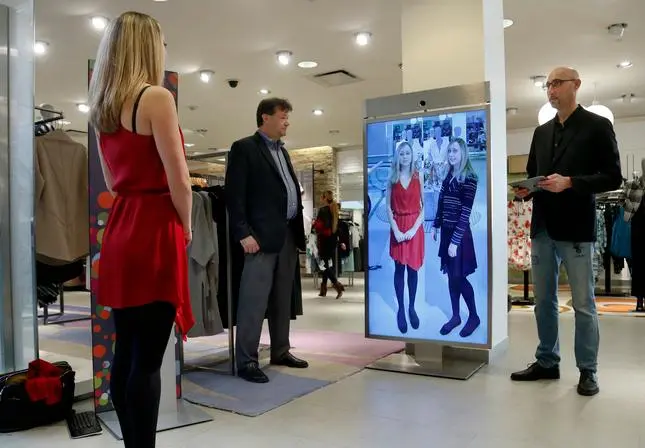
Enhancing the Online Shopping Experience in Fitting Rooms with Smart Mirrors and Augmented Reality
Enhancing the Online Fashion Experience with Augmented Reality Smart Mirrors
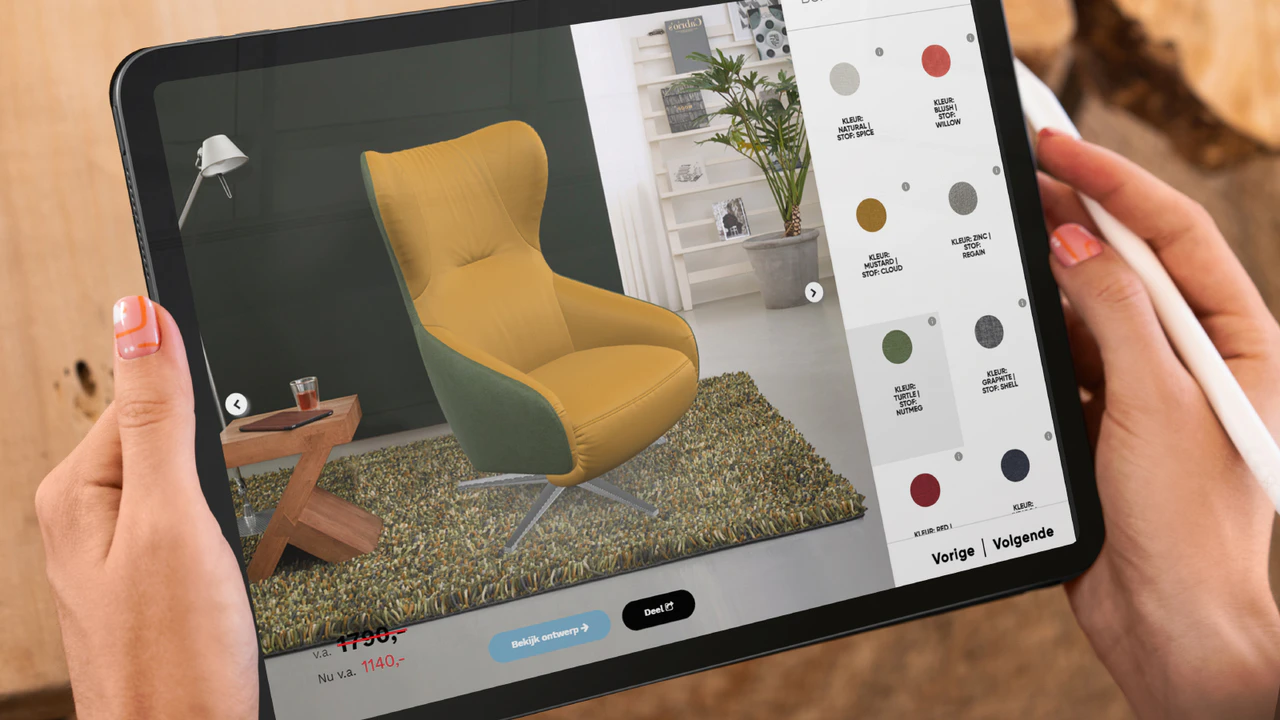
3D Product Visualization: The Future of E-Commerce
Elevating E-Commerce: How 3D Product Visualization is Shaping the Future of Online Shopping
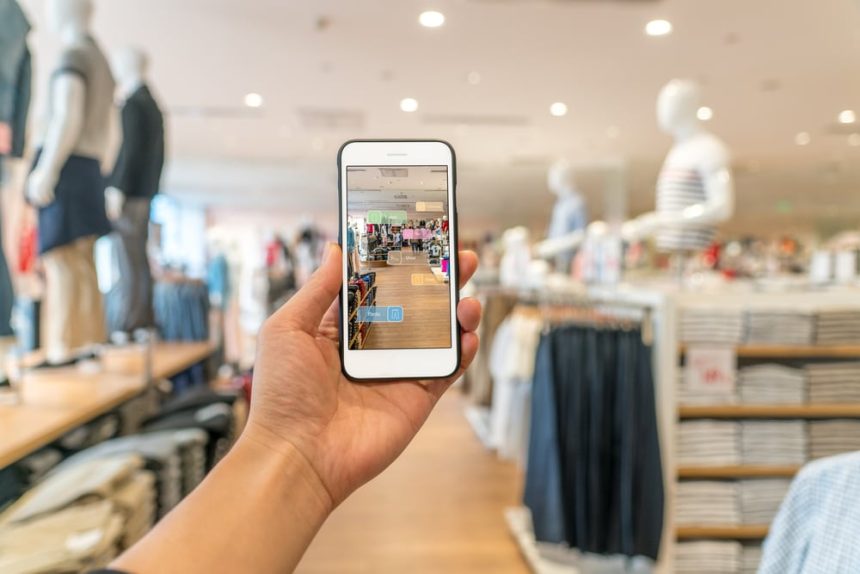
5 Reasons Why Augmented Reality is Revolutionizing Online Shopping: A Case Study of a Fashion Retail Company
Augmented Reality in E-Commerce: A Game-Changer for Online Shopping Experiences with Real-World Impact

10 Benefits of Investing in a 3D Modeling and Augmented Reality SaaS for Your E-Commerce Business
Reshaping E-Commerce Experiences: Unveiling the Multifaceted Advantages of 3D Modeling and AR Technology for Online Retail

A Catalyst for Innovation on Your E-Commerce Site: Augmented Reality
Augmented Reality: Your Path to Distinctive E-Commerce Excellence and Innovation Leadership
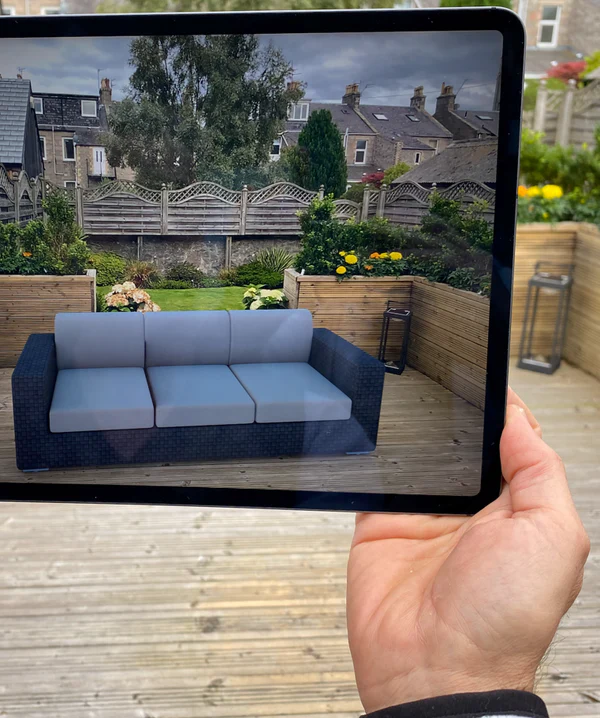
A Look at Augmented Reality's Effects on Online Shopping
Augmented Reality: Revolutionizing Online Shopping for an Immersive and Informed Experience

A New Dimension for Summer Online Sales: Augmented Reality
Revolutionizing Summer Sales: Embrace Augmented Reality for a Memorable Shopping Experience
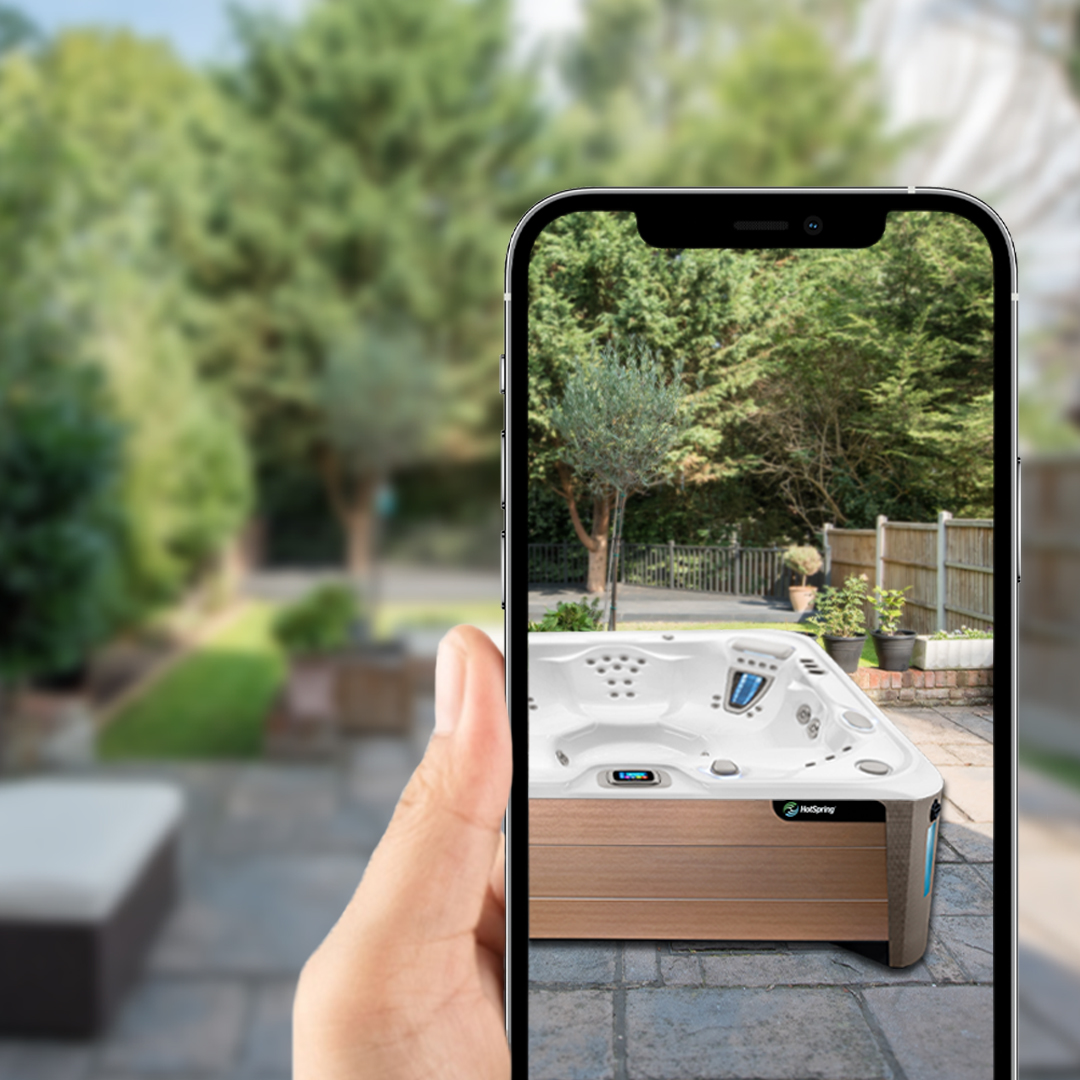
A Summertime Revolution: The Rise of Augmented Reality in E-Commerce
Augmented Reality Reshaping Summer E-Commerce: Immersive Experiences, Try-Before-Buy, and Personalized Fun

AR Reduces E-commerce Returns
Augmented Reality in E-Commerce: A Game-Changer for Reducing Returns, Enhancing Customer Satisfaction, and Transforming the Online Shopping Experience
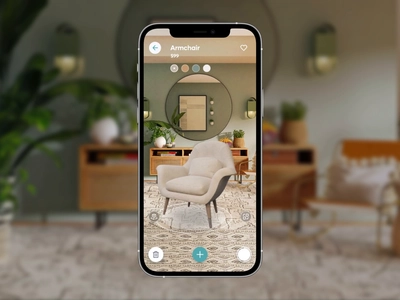
Augmented Reality: Revolutionizing Online Furniture Shopping
Augmented Reality Transforms Online Furniture Shopping: Enhancing Confidence, Personalization, and Space Planning for an Interactive Customer Experience

Augmented Reality: Transforming the Online Cosmetics Shopping Experience
Augmented Reality Revolutionizes Online Cosmetics Shopping: Empowering Confidence, Personalization, and Engagement
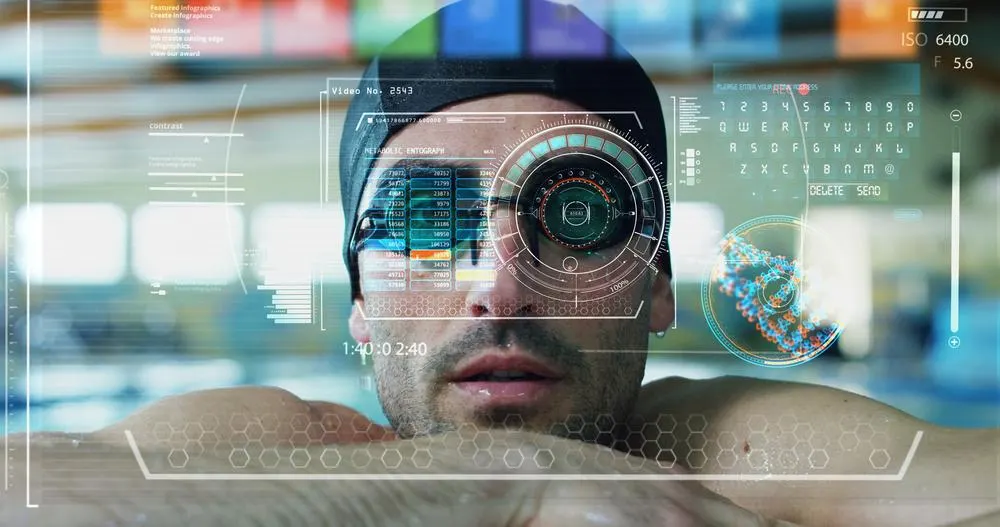
Augmented Reality and 3D Shopping for Sports Equipment
Revolutionizing Athletic Goods Retail: Augmented Reality and 3D Modeling for Enhanced Customer Engagement and Data-Driven Success

Augmented Reality and Fashion E-Commerce: A Perfect Match
Elevating Fashion E-Commerce: Augmented Reality's Stylish Revolution in Virtual Try-Ons and Personalized Shopping

Augmented reality and sunglasses: Improving the Online Shopping Experience
Shaping the Future of Sunglass Shopping: Augmented Reality's Fusion with Fashion and Personalization
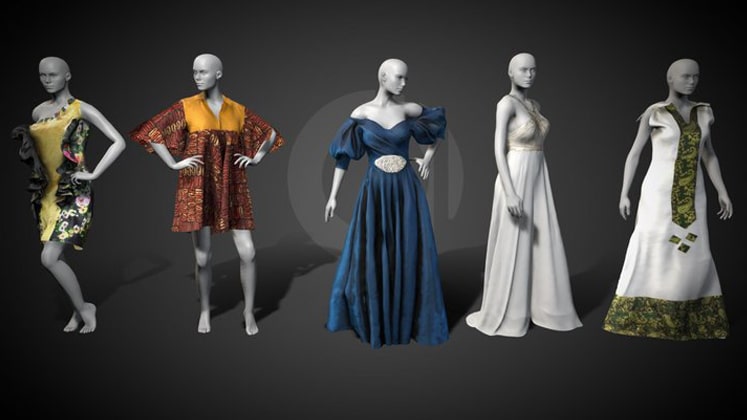
Augmented Reality in Fashion: Enhancing the Customer Experience
Elevating Fashion Retail: The Augmented Reality Revolution for Personalized Shopping and Enhanced Brand Engagement
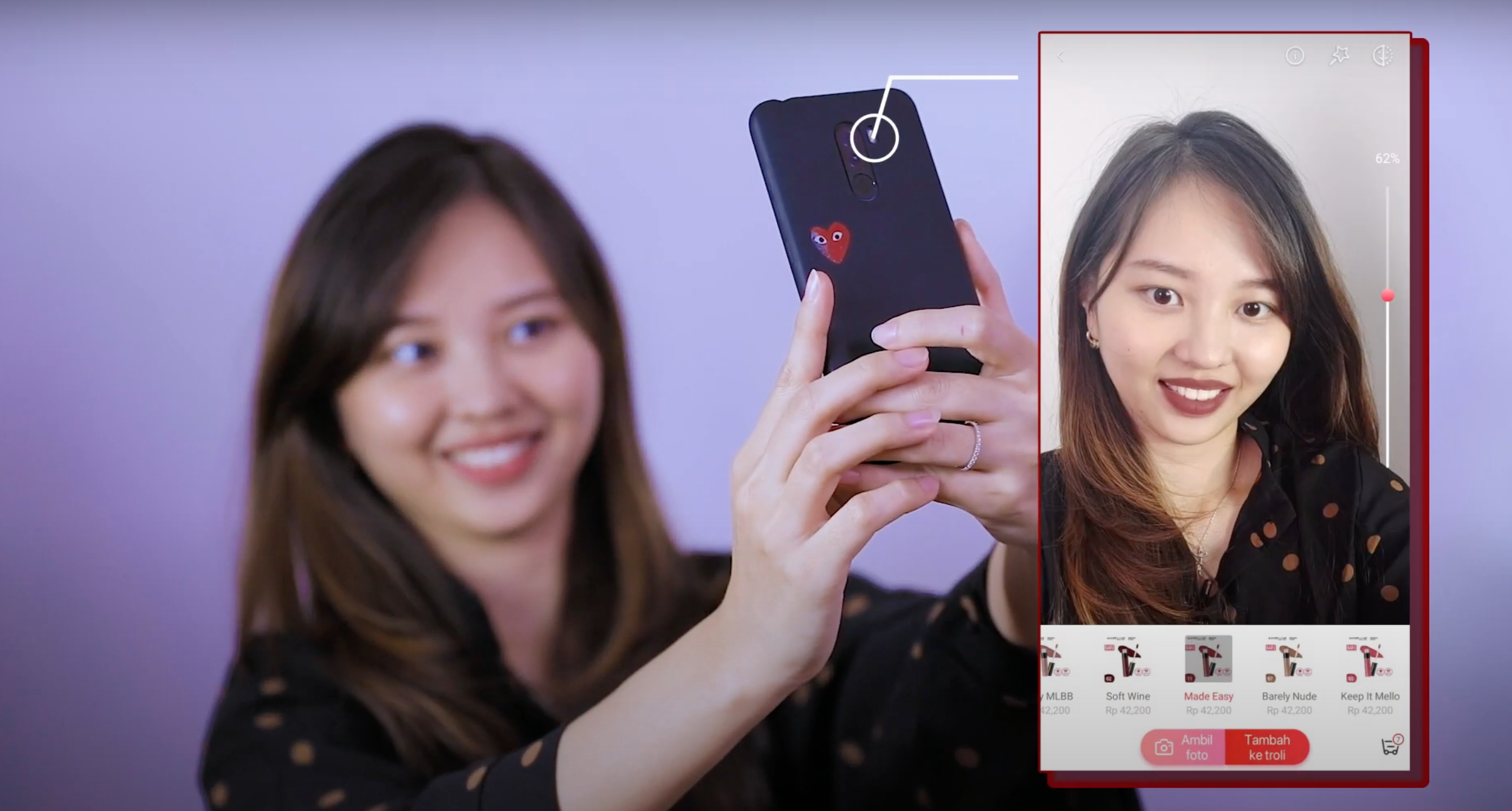
Augmented reality in the online beauty sector: Increasing customer trust and boosting sales!
Elevating Beauty Shopping: Augmented Reality's Empowerment of Customer Confidence and Personalized Choices

Augmented reality's Key to SEO Success for Your E-Commerce Website
Mastering SEO for E-Commerce Success: Best Practices to Boost Visibility and Sales

Augmented Reality's Revolutionary Effects on Online Sales
Augmented Reality in E-Commerce: Transforming Customer Engagement, Redefining Online Shopping, and Boosting Revenue
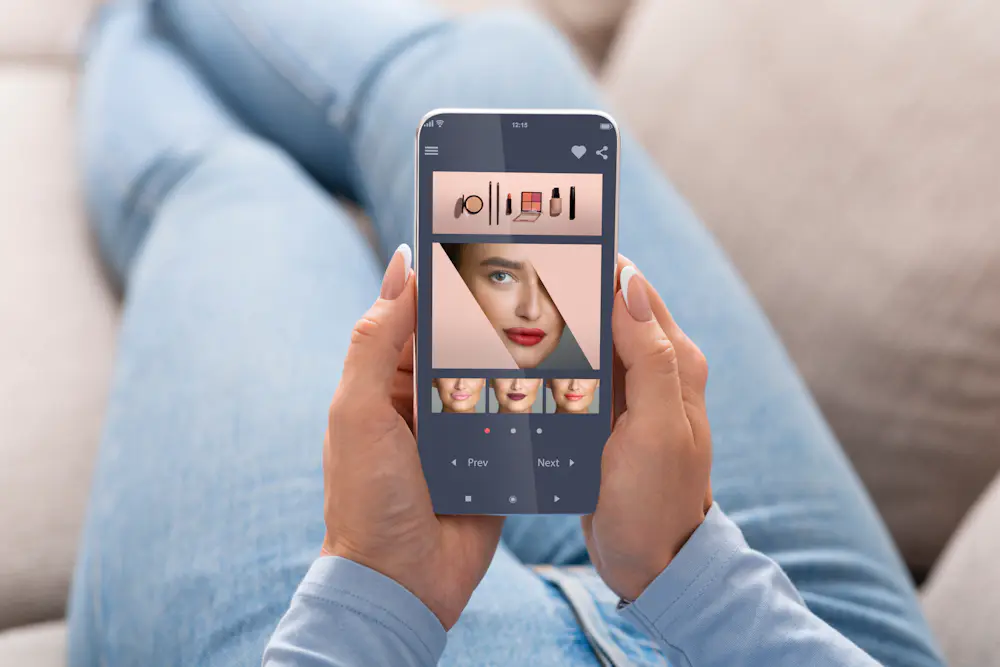
Augmented Reality's Role in Customized Product Selection Is Revolutionizing the Beauty Sector
Augmented Reality's Beauty Revolution: Transforming Customization, Enhancing Confidence, and Elevating Customer Engagement
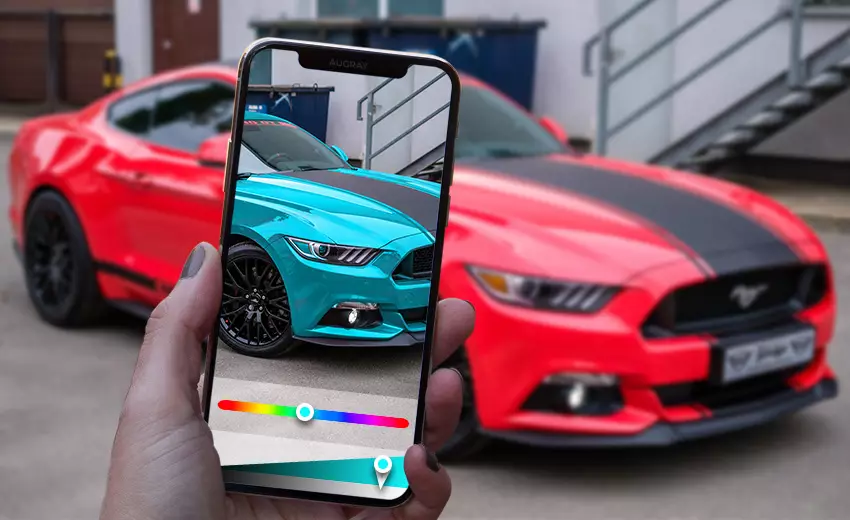
Augmented Reality to Improve Automotive Customization via Online Business
Revolutionizing Vehicle Customization: How Augmented Reality Enhances Online Sales, Engages Customers, and Expands Customization Possibilities

Augmented Reality Trends in E-commerce for 2023: Personalization, Gamification, and Mobile Integration
2023 Augmented Reality Trends in E-Commerce: Personalization, Gamification, and Mobile Integration

By Creating Interactive Virtual Catalogs, Online Shopping Can Be Made More Enjoyable.
Transforming the E-Commerce Landscape: The Power of 3D Viewing for Immersive Shopping and Personalized Product Customization

Elevate Your E-Commerce Game with CharpstAR's 3D as a Service
AR as a Service: Transforming E-Commerce for Enhanced Customer Engagement and Sales

Enhance Your E-commerce with Augmented Reality Product Visualization Using CharpstAR
Transform Your E-Commerce Business with CharpstAR's Spectacular Augmented Reality Experiences
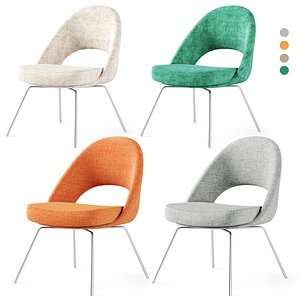
Enhancing the Online Shopping Experience with 3D Product Customization
Crafting Unique Experiences: How 3D Product Customization Elevates Online Shopping to New Heights
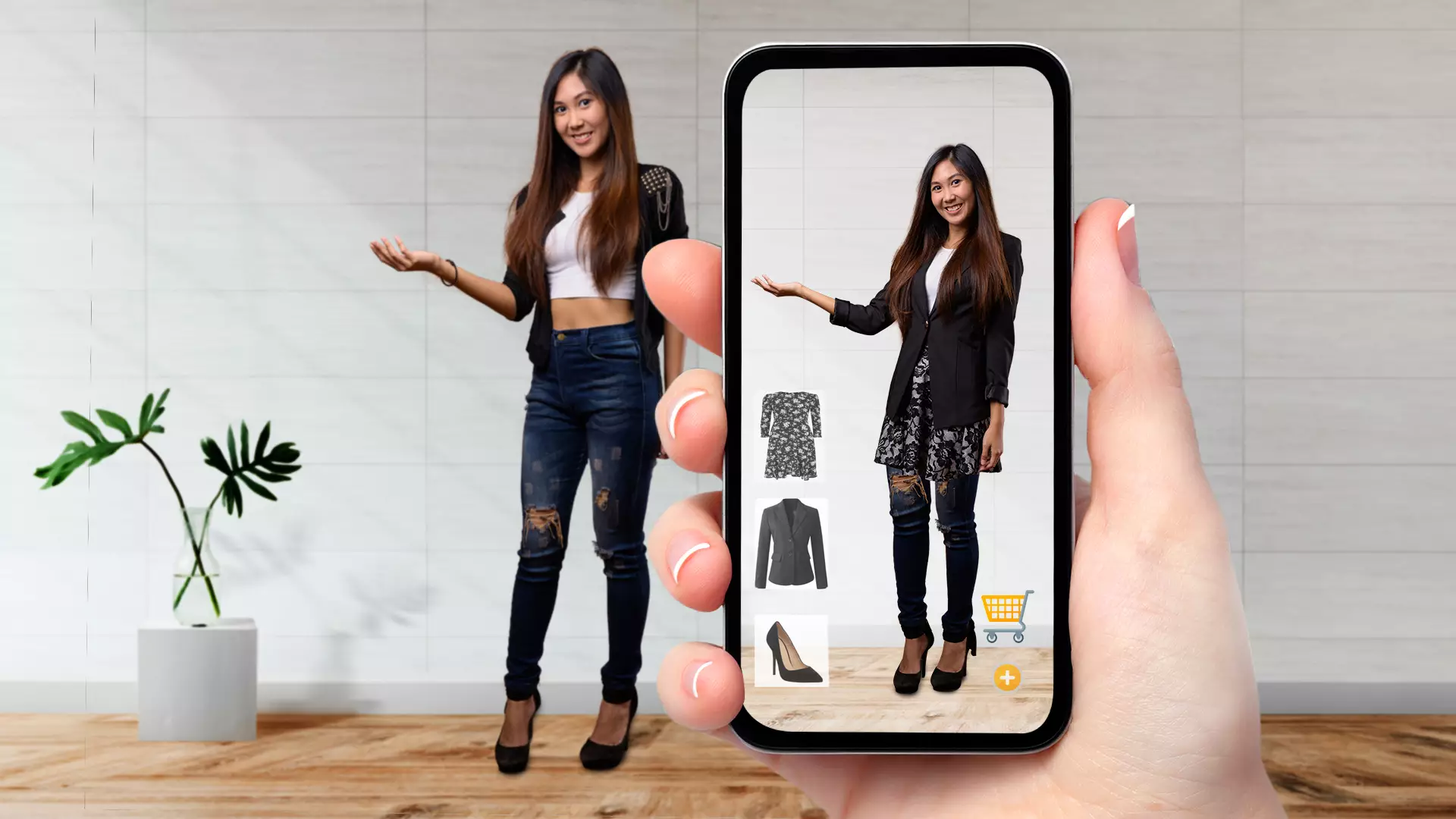
Enhancing user experience via AR virtual garment fittings
Catalyzing Online Fashion Retail: Augmented Reality's Impact on Customer Engagement and Sales

Expanding Your E-Commerce: From Local to Global Reach with augmented reality
Unlocking Global Markets: Augmented Reality and Multilingual Product Visualization for Immersive E-Commerce Experiences
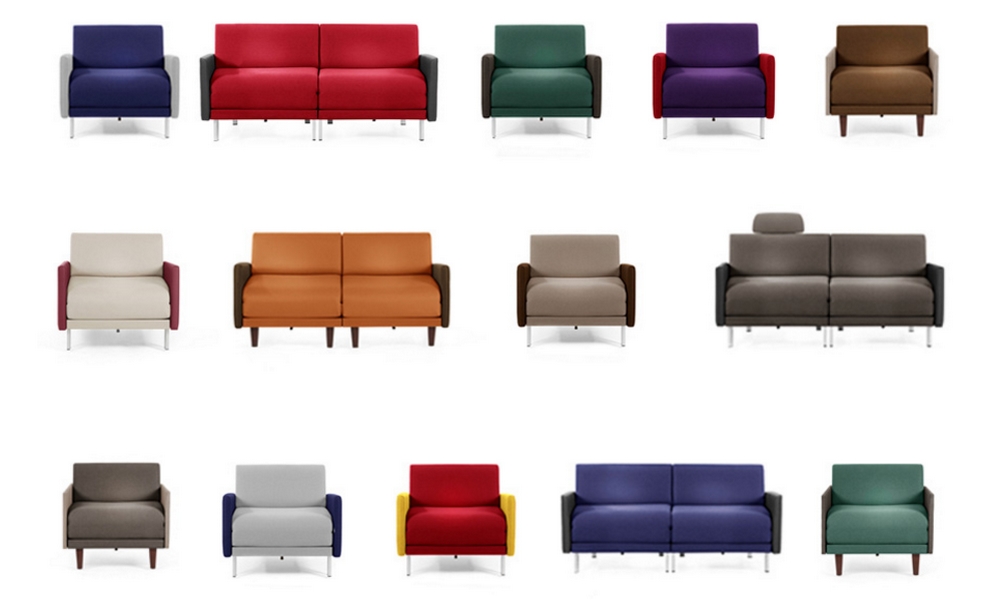
Extending E-Commerce Personalization with AR and 3D
Elevating Customer Engagement with 3D and Augmented Reality: Tailoring the Online Shopping Experience

Harnessing Augmented Reality to Boost Your E-Commerce Website: Real-World Experiences
Elevate Your E-Commerce Game: Augmented Reality's Impact on Sales and Customer Loyalty – Real-World Case Studies and Insights
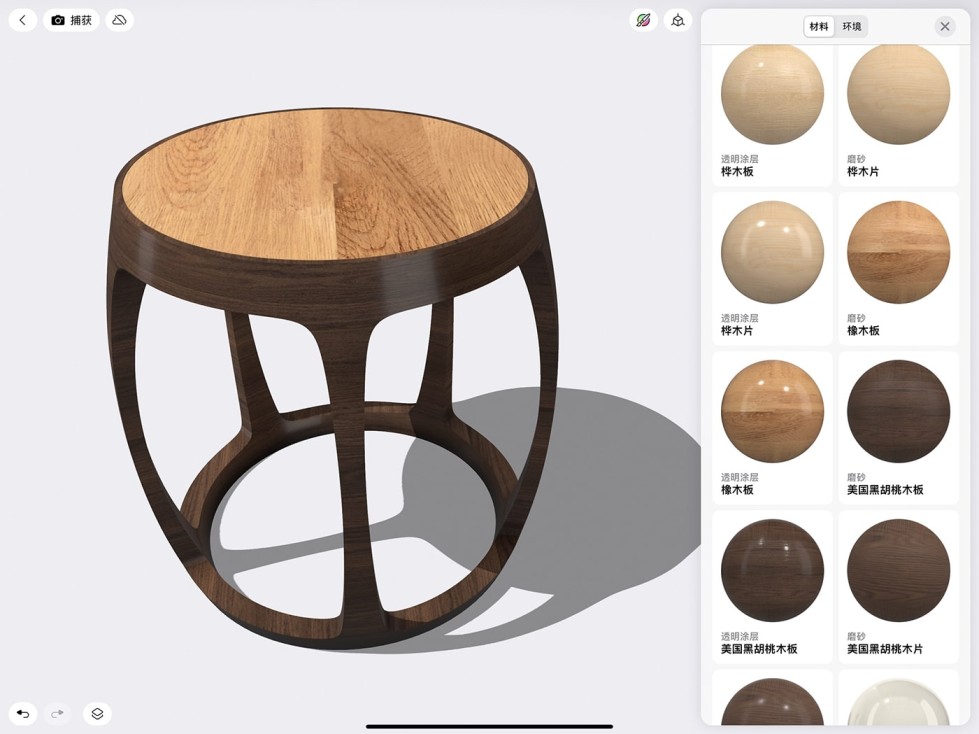
How 3D Models are Revolutionizing Furniture Shopping in Augmented Reality
Furniture Shopping Revolutionized: How 3D Models and Augmented Reality Are Changing the Game
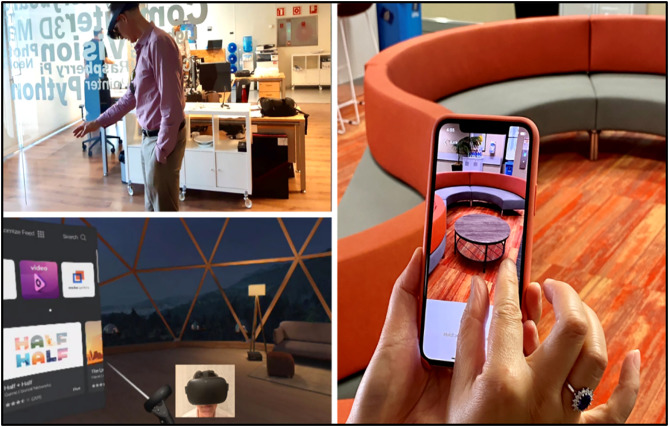
How Augmented Reality and 3D are Enhancing Home Decor E-Commerce
Transforming the Home Decor E-Commerce Landscape: The Power of Augmented Reality and 3D Technology
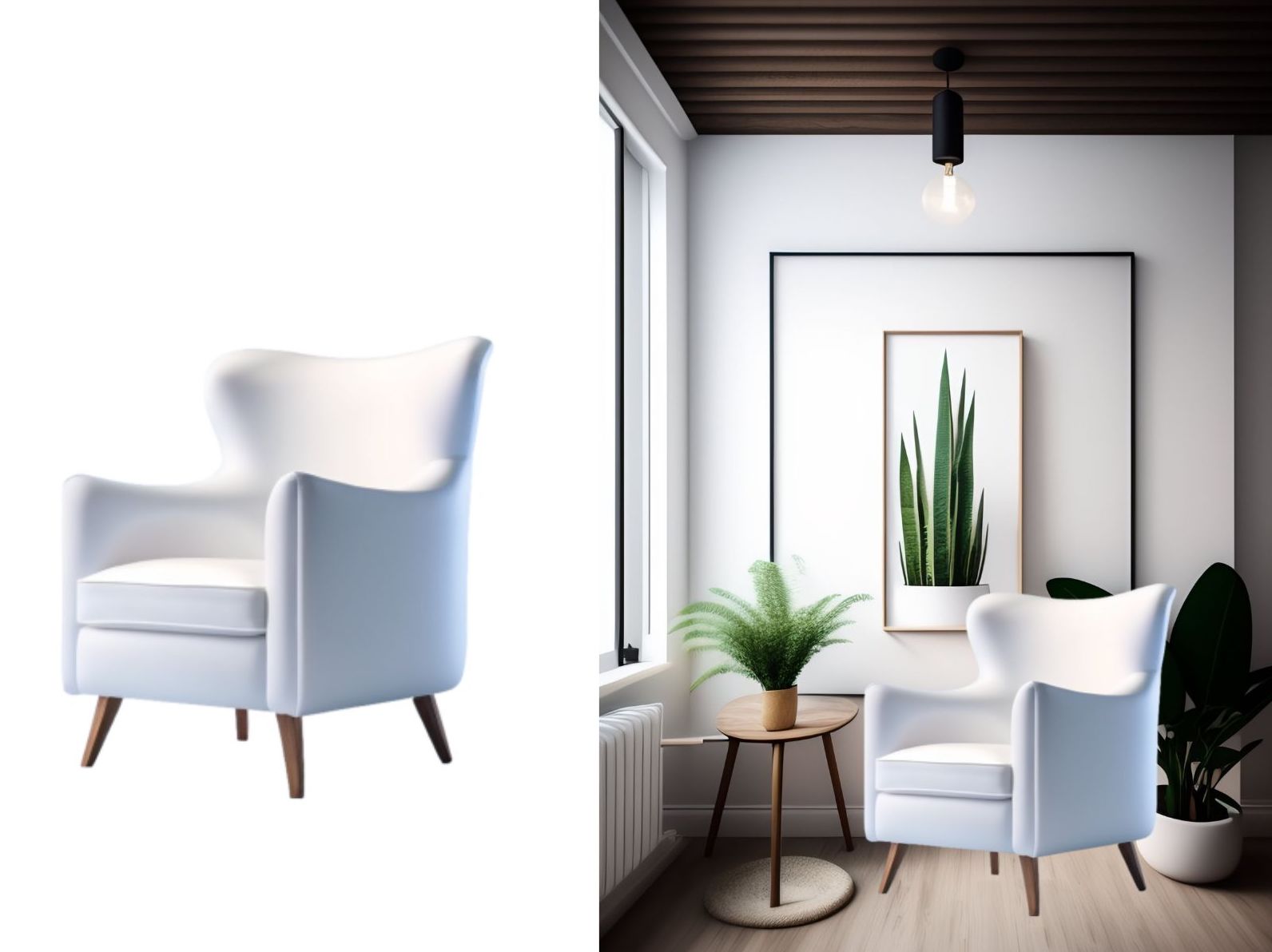
How Augmented Reality and 3D Technology Can Increase Your Online Sales
Unveiling the Dynamics of Augmented Reality and 3D Technology: Elevating E-Commerce User Experiences and Sales

How Augmented Reality Boosts Social Media Sharing and Visibility
Augmented Reality: Transforming Social Media Engagement and Amplifying Brand Visibility

How Augmented Reality Can Boost Transparency and Trust in Online Shopping
Boosting Customer Trust and Transparency in E-Commerce with Augmented Reality: Real-World Case Studies

How Augmented Reality Can Boost Your Sales and Reduce E-commerce Shopping Cart Abandonment
Revolutionize Your E-Commerce Strategy with Augmented Reality: Reducing Cart Abandonment and Increasing Sales

How Augmented Reality Can Cut Marketing Costs for Your E-Commerce Business.
Augmented Reality: Cutting E-commerce Marketing Costs and Enhancing the Shopping Experience

How Augmented Reality Can Increase Online Impulse Purchases
Augmented Reality: Elevating Impulse Buys and Average Order Values in E-commerce

How Augmented Reality Can Resolve Fit and Size Problems in Online Fashion Shopping
Augmented Reality: Revolutionizing Fit and Sizing in Fashion E-commerce
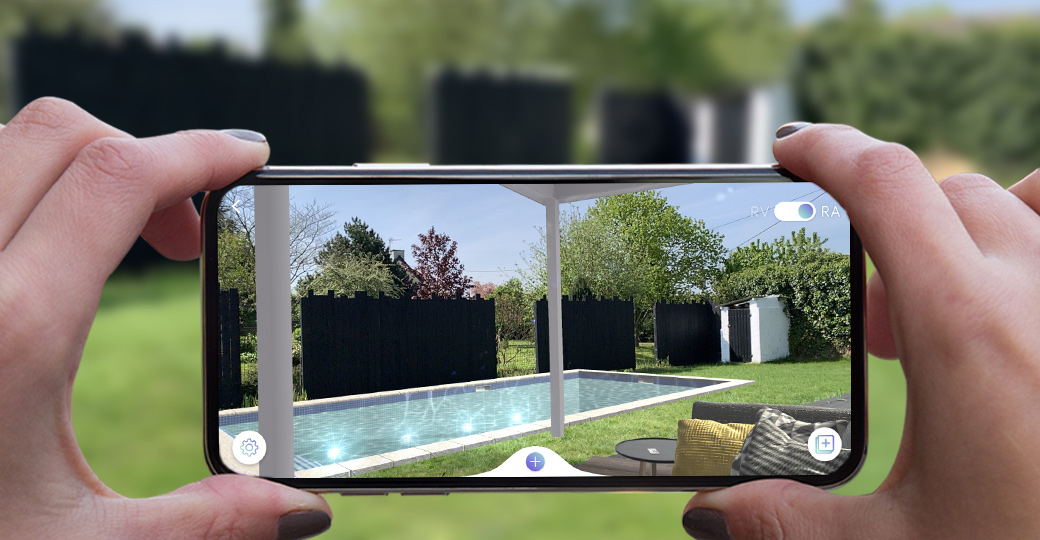
How Augmented Reality Changes the Outdoor Landscaping E-Commerce Experience: Unlocking the Potential
Augmented Reality Transforms Outdoor Landscaping E-commerce: Enhancing Visualizations and Customization

How Augmented Reality is Changing Online Product Discovery for Consumers
Unlocking the Power of Augmented Reality: Transforming Online Product Discovery

How Augmented Reality is Changing the Beauty E-Commerce Industry
Unlocking the Beauty of Augmented Reality: Revolutionizing the Beauty E-Commerce Experience

How Augmented Reality Makes Online Car Shopping Easier
Augmented Reality: Transforming Car Shopping into an Immersive Experience with Realistic Visualization and Virtual Test Drives

How E-Commerce AR Try-Ons Can Reduce the Cost of Inventory and Store Infrastructure
Unlocking Savings and Efficiency: How Augmented Reality Try-Ons Revolutionize E-commerce Cost Management

How SaaS Can Help Your E-Commerce Business Stay Competitive with 3D Modeling and Augmented Reality
Staying Ahead in E-commerce: How SaaS Enables 3D Modeling and AR Integration for Competitive Customer Experiences
How to Boost Your E-Commerce for Summer Sports Products using Augmented Reality
Discover how the integration of augmented reality technology can make this summer the best one yet for your customers, offering an engaging and interactive way to select their ideal sports gear.

How to Improve Your E-Commerce Marketing Strategy using Augmented Reality
Augmented reality enhances your e-commerce strategy, differentiates your brand, boosts conversion rates, and reduces returns. Stay ahead by embracing AR now.
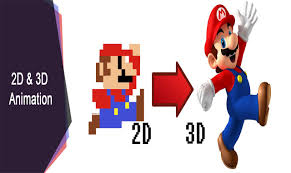
How to make 3D models based on 2D Images?
Converting 2D to 3D uses techniques like photogrammetry and structured light scanning, valuable for design visualization and virtual testing.

How Virtual Shopping Experiences in Augmented Reality are Changing Consumers' Shopping Behavior
Augmented reality (AR) revolutionizes online shopping, offering immersive experiences, reducing returns, and providing valuable data for optimization.

Implementing Web AR on Your E-Commerce Website Can Be Made Simpler
Integrating Web AR into your e-commerce site is simple. Choose a user-friendly platform, prepare 3D models, embed the code, test for compatibility, and promote the experience to enhance your customers' shopping journey.

Important Data on Augmented Reality's Effect on E-Commerce
AR in e-commerce increases conversions, reduces returns by 25%, boosts user engagement, and builds trust. Integrate AR for an engaging, trustworthy shopping experience.

Improving Customer Experience on Your E-Commerce Platform using Augmented Reality
AR in e-commerce offers immersive shopping, informed choices, trust, personalization, and shareable moments. Create memorable shopping with AR.

Increase Sales with 3D View: Cross-Selling and Upselling for Your E-commerce Website Reimagined
Adding 3D view to e-commerce enhances sales, reduces returns, and creates cross-selling and upselling opportunities. Upgrade for success.
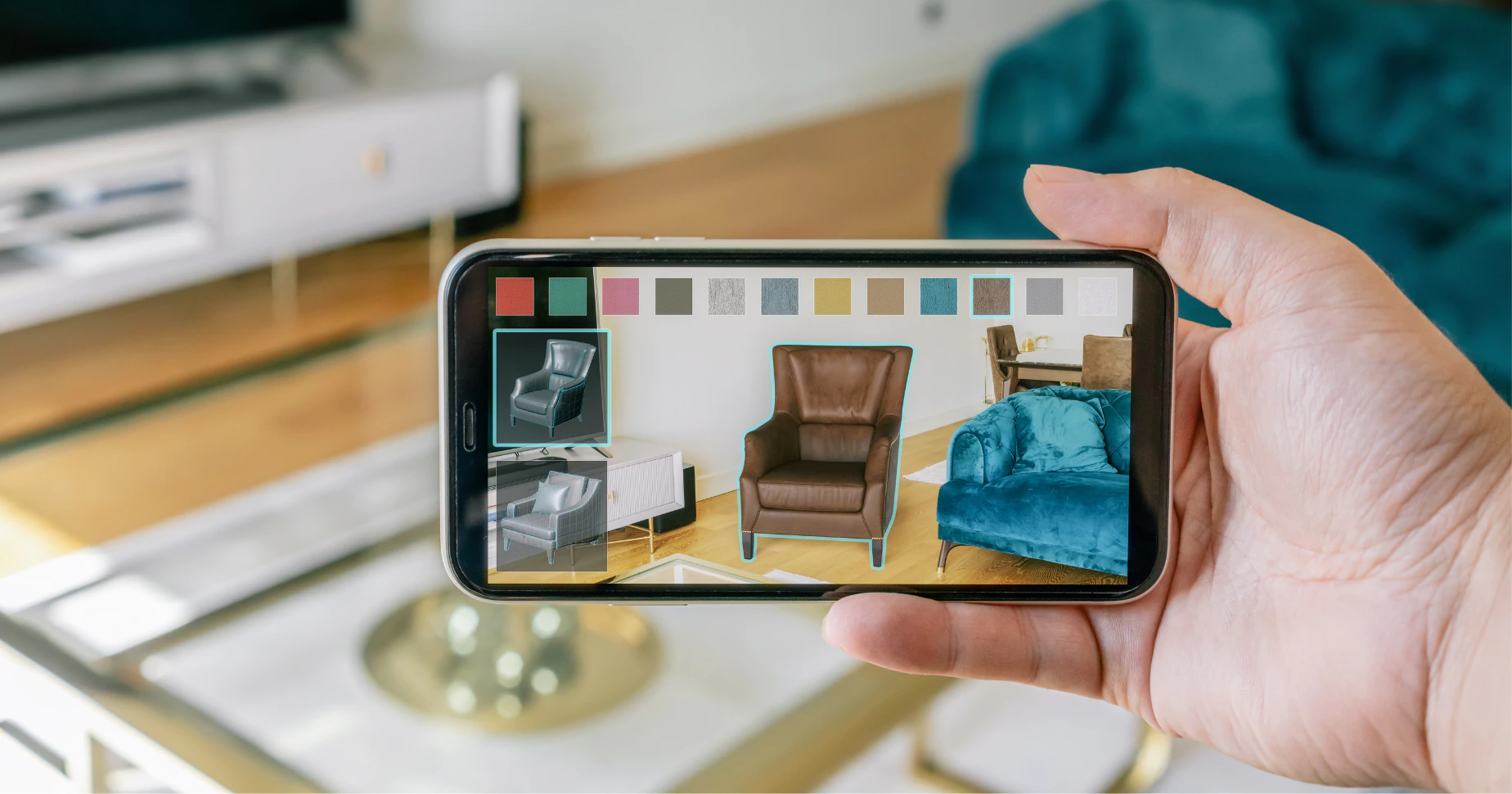
Making the Most of 3D Visualization and Augmented Reality for E-Commerce Managers to Expand Brand Reach
Leverage 3D visualization and augmented reality to enhance product presentation, engage customers, stand out in the market, and boost social media impact. Elevate your e-commerce brand.
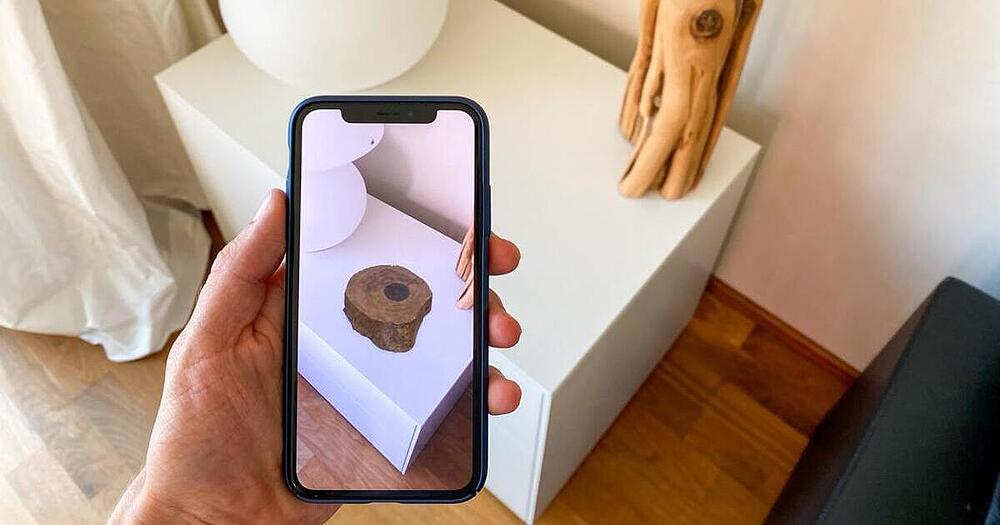
Maximizing the Potential of AR and 3D for E-commerce
AR and 3D revolutionize e-commerce, enabling virtual try-ons and interactive product demonstrations, enhancing customer satisfaction and sales. Partner with experienced tech providers for effective implementation.

Modern Augmented Reality Developments for Online Furniture: What Every E-Commerce Manager Should Know
Augmented reality in online car sales allows customers to customize and visualize their vehicles, reducing buying risks and enhancing engagement, ultimately leading to higher sales.
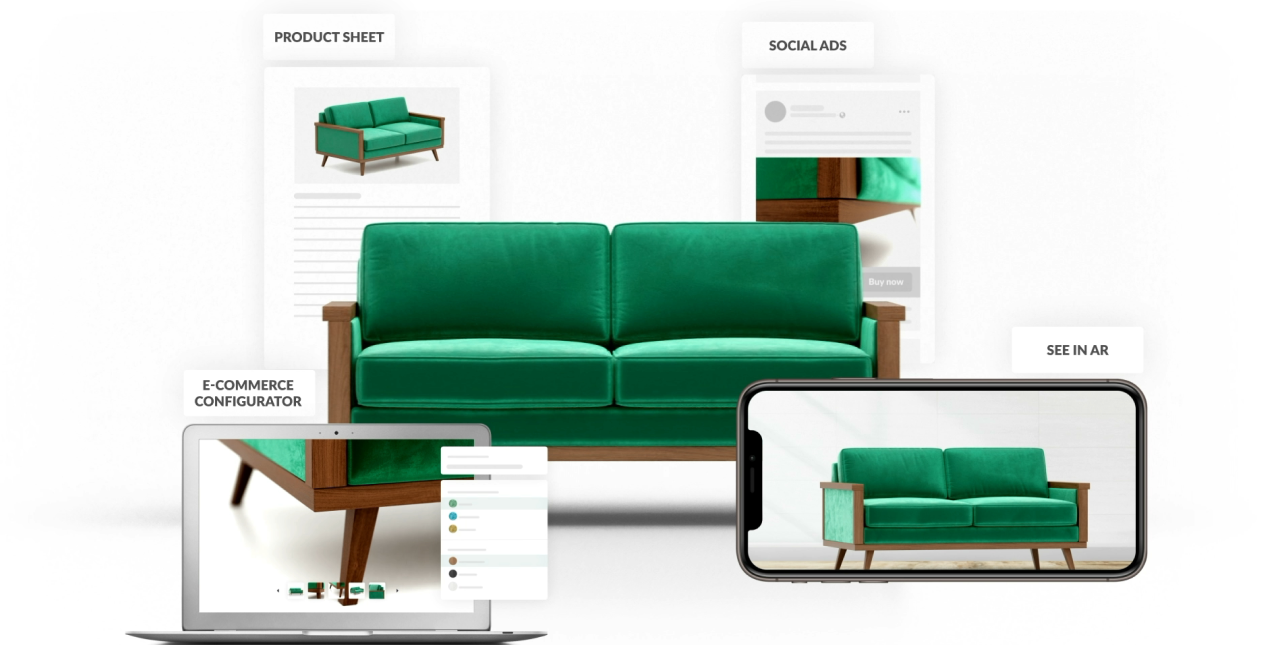
ng the Home Decor E-Commerce Industry with Augmented Reality
AR is changing home decor e-commerce. It lets customers visualize products in their spaces, experiment with decor, boosts engagement, and cuts costs, increasing conversions.
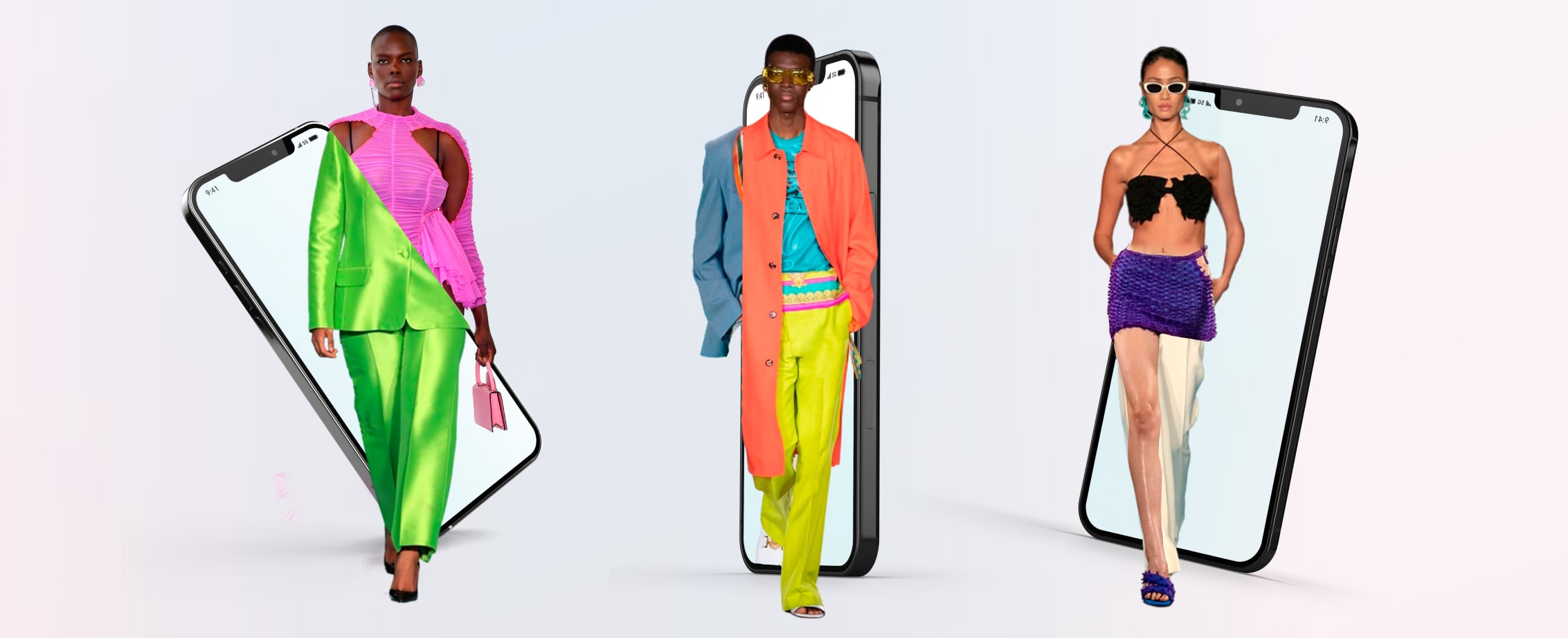
Revolutionizing Fashion E-Commerce: How Augmented Reality and 3D are Transforming the Industry
AR and 3D tech revolutionize fashion e-commerce with virtual fitting rooms, interactive visuals, customization, engagement, and cost savings, creating an immersive shopping experience for customers.
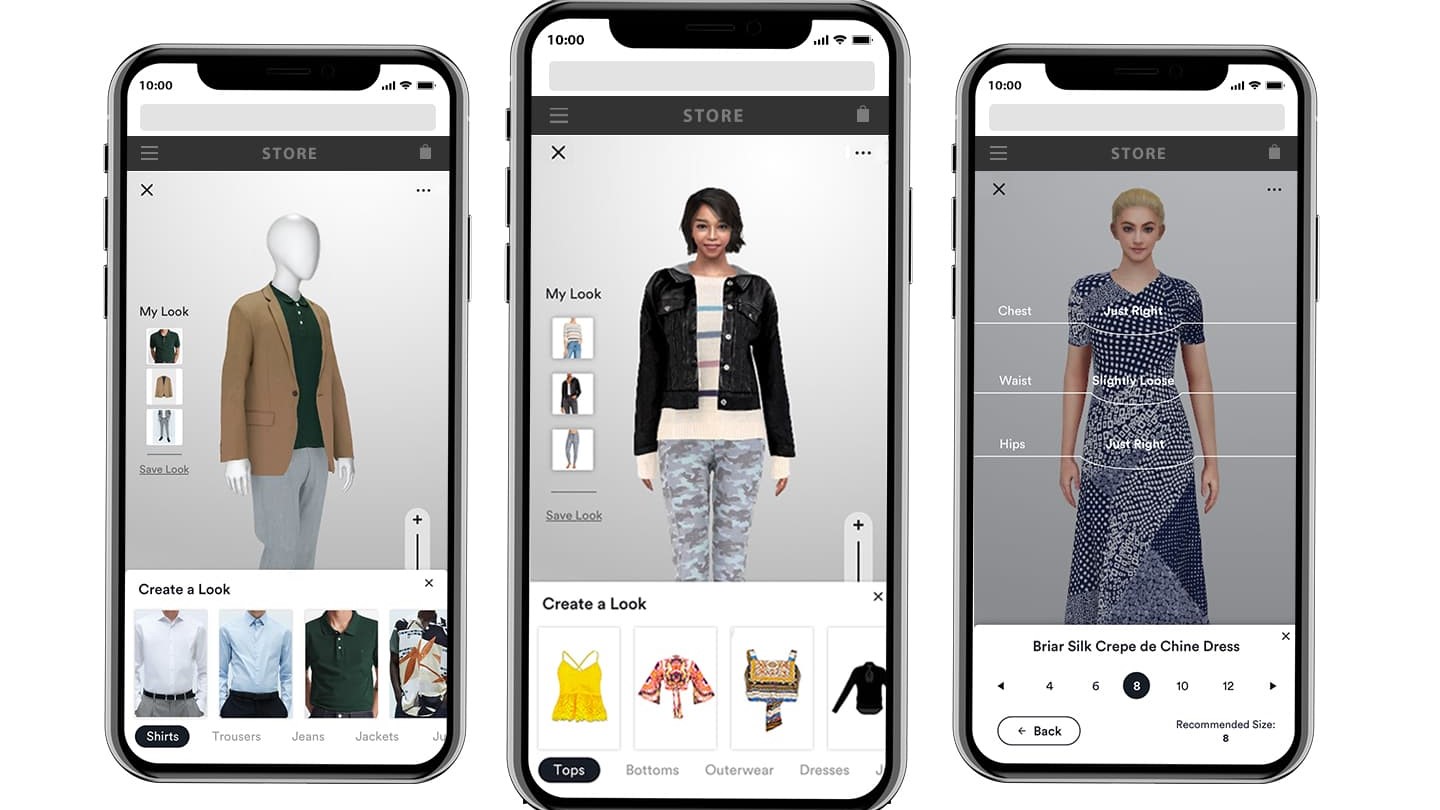
Revolutionizing Fashion E-Commerce with 3D and Augmented Reality
3D and AR tech revolutionize fashion e-commerce with virtual try-ons, enhanced visuals, personalization, engagement, cost savings, and increased conversion rates, offering an interactive shopping experience.
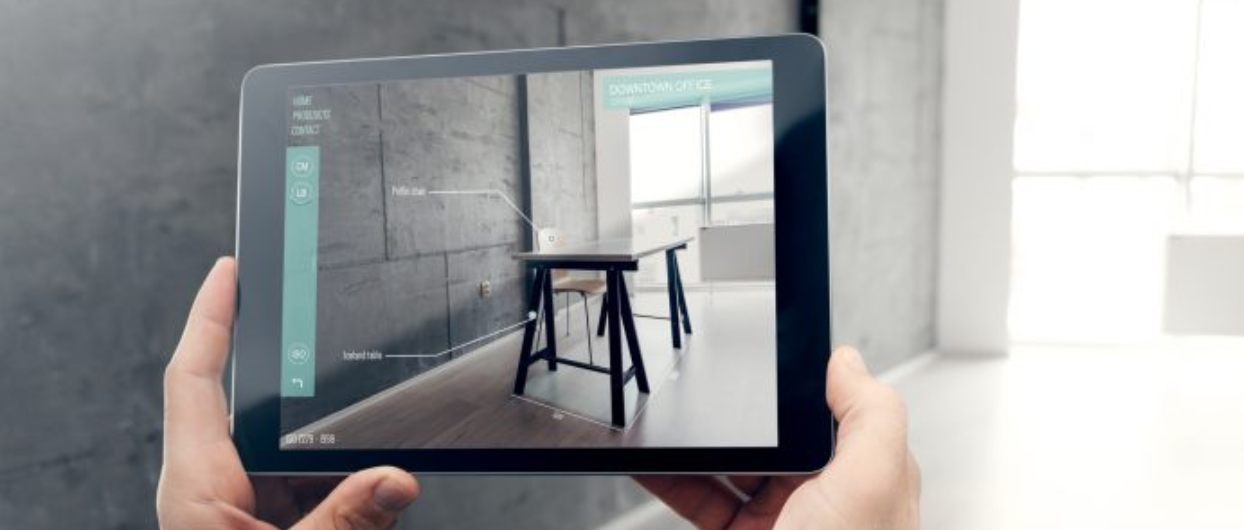
Revolutionizing Home Decor E-Commerce with 3D Technology
3D tech revolutionizes home decor e-commerce with realistic visualization, personalization, engagement, cost savings, and increased conversion rates. Customers save time and minimize returns.

Revolutionizing the Automotive E-Commerce Industry with 3D and Augmented Reality
3D and AR tech are enhancing automotive e-commerce with virtual showrooms, customization, and virtual test drives, offering an interactive and realistic car-buying experience.

Revving Up Automotive E-Commerce with Augmented Reality
AR is reshaping automotive e-commerce with virtual test drives, customization, confidence-building, cost savings, engagement, and time efficiency, transforming the car-buying experience.
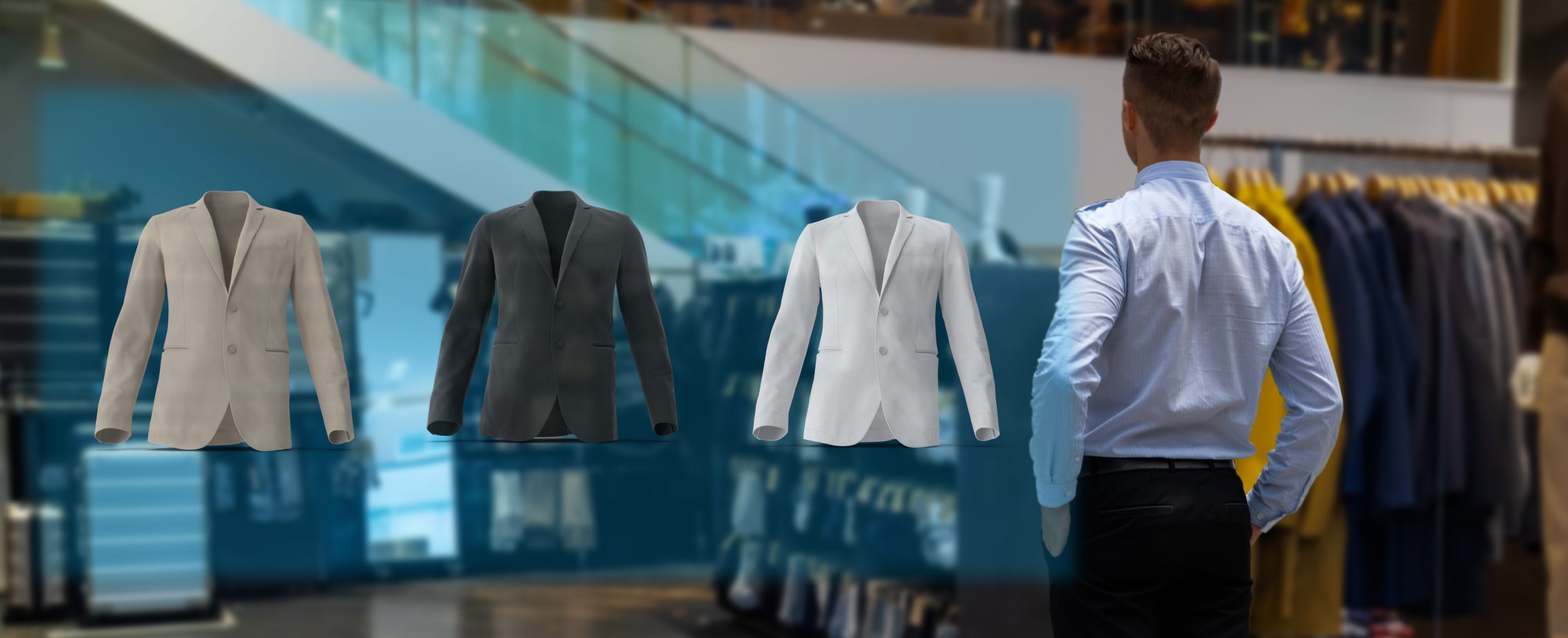
Sustainable Fashion and Augmented Reality: Enhancing Your E-Commerce Experience
E-commerce managers can use augmented reality (AR) to promote sustainable fashion. AR reduces returns, educates on sustainability, and attracts eco-conscious consumers, positively impacting the fashion industry.

Targeting Generation Z: Why Fashion E-Commerce Managers Must Include Augmented Reality
Integrate augmented reality (AR) into your fashion e-commerce to captivate Generation Z. AR offers virtual try-ons, social sharing, personalization, and aligns with their preference for modern experiences, distinguishing your brand and ensuring long-term success.

The Advantages of Augmented Reality for Small Businesses in E-Commerce
Augmented reality empowers small e-commerce businesses with immersive product presentation, virtual try-ons, and increased customer engagement, giving them a competitive edge, enhancing brand awareness, and boosting revenue. It's a valuable asset for growth and success.

The Automotive World is Being Revolutionized by Augmented Reality for an Extraordinary Driving Experience
Augmented reality is transforming the automotive industry, enhancing road safety, providing real-time information on windshields, personalizing the driving experience, and simplifying maintenance and repairs with step-by-step instructions and component assessments for technicians.
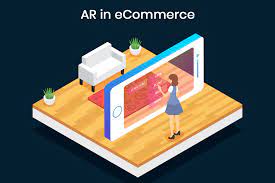
The Benefits of Augmented Reality for E-Commerce
Augmented reality (AR) is revolutionizing e-commerce by enhancing product visualization, increasing engagement, reducing returns, providing a competitive edge, and offering cost-effectiveness. It creates interactive and immersive shopping experiences, benefiting both customers and businesses.

The Effect of Augmented Reality on Customer Loyalty in E-Commerce
Augmented reality (AR) revolutionizes e-commerce with immersive 3D experiences, reducing returns and boosting loyalty. E-commerce sites using AR gain a competitive edge by prioritizing customer satisfaction.
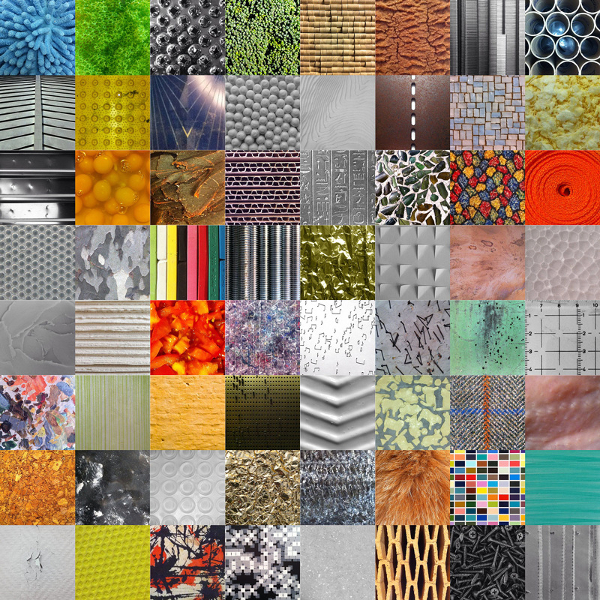
The Endless Texture Possibilities of Augmented Reality: A New Way to Onlinely Display All of Your Products
Augmented reality (AR) in e-commerce offers immersive product experiences, reducing returns. Customers can visualize and customize products with realistic textures. This enhances satisfaction, loyalty, and online shopping interactions.
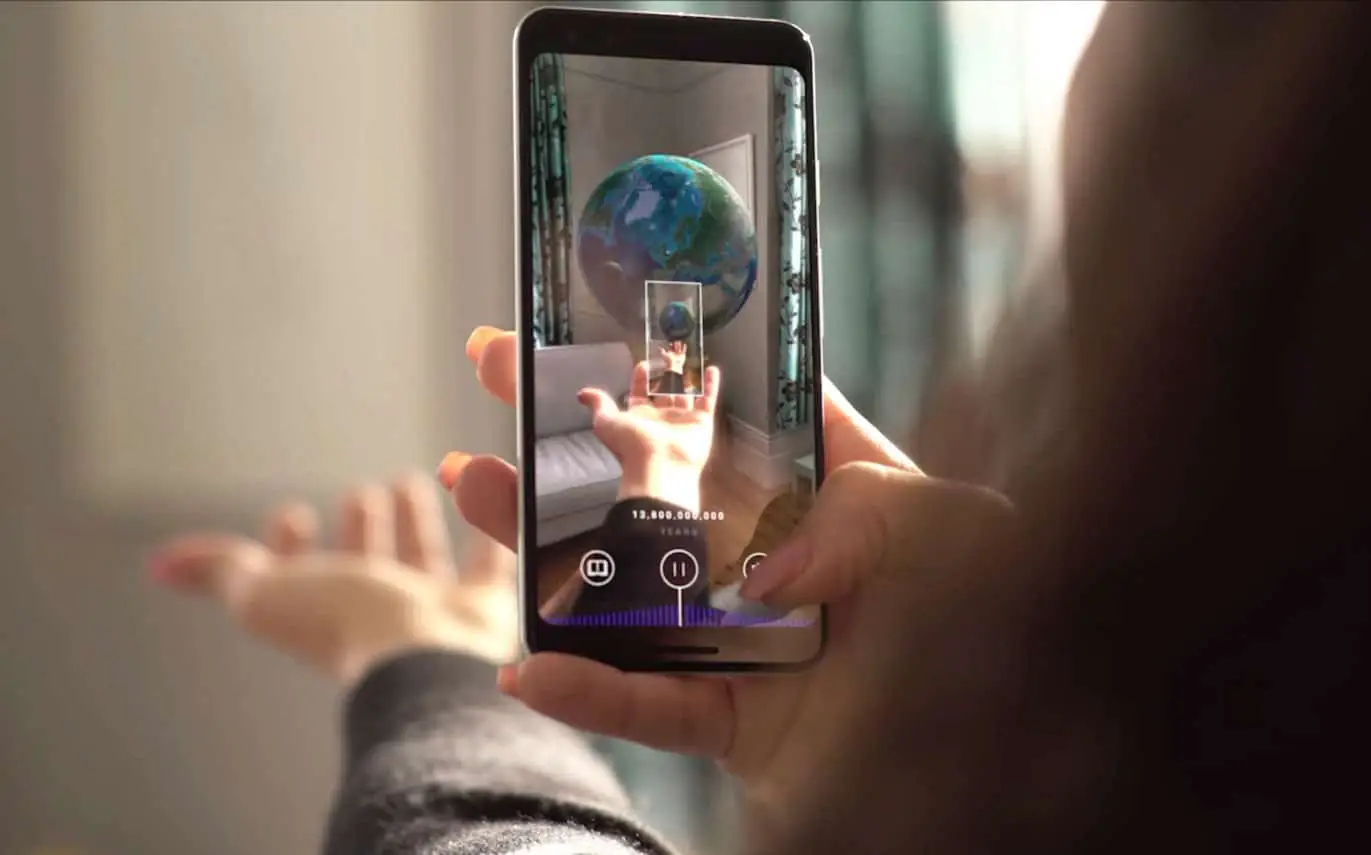
The Environmental Benefits of Augmented Reality in E-Commerce
Augmented reality (AR) in e-commerce decreases product returns and lowers CO2 emissions. For instance, an online fashion retailer reduced returns by 30%, while an online furniture retailer boosted conversions by 40% with AR. AR enhances the customer experience, reduces waste, and supports sustainability, making it a valuable e-commerce tool.
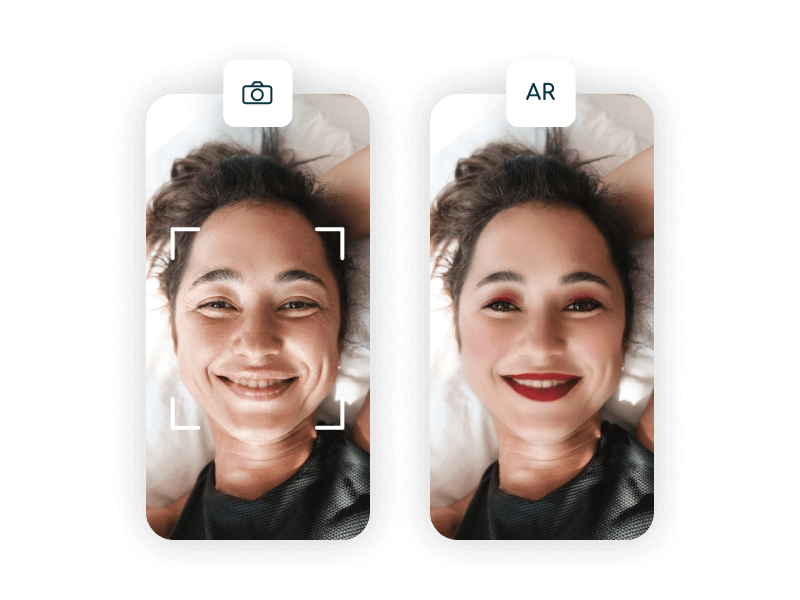
The fusion of technology and perfect aesthetics in augmented reality and personalized beauty advice
AR revolutionizes the beauty industry with personalized recommendations and virtual product testing, enhancing self-esteem through individualized guidance.

The Future of Augmented Reality and 3D in E-Commerce
AR and 3D tech will shape e-commerce with improved product visualization, personalization, seamless integration, enhanced customer engagement, cost-effective logistics, and virtual try-on, enhancing the overall shopping experience.
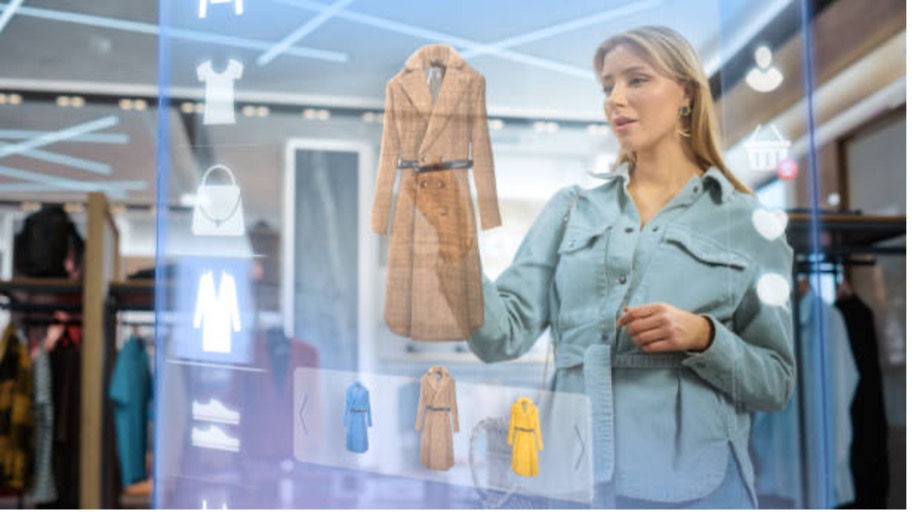
The Future of Fashion E-Commerce: How Augmented Reality is Changing the Game
AR is transforming fashion e-commerce with virtual try-ons, enhanced personalization, interactive product visualization, cost reduction, increased engagement, and improved conversion rates, creating a personalized and engaging shopping experience for customers.
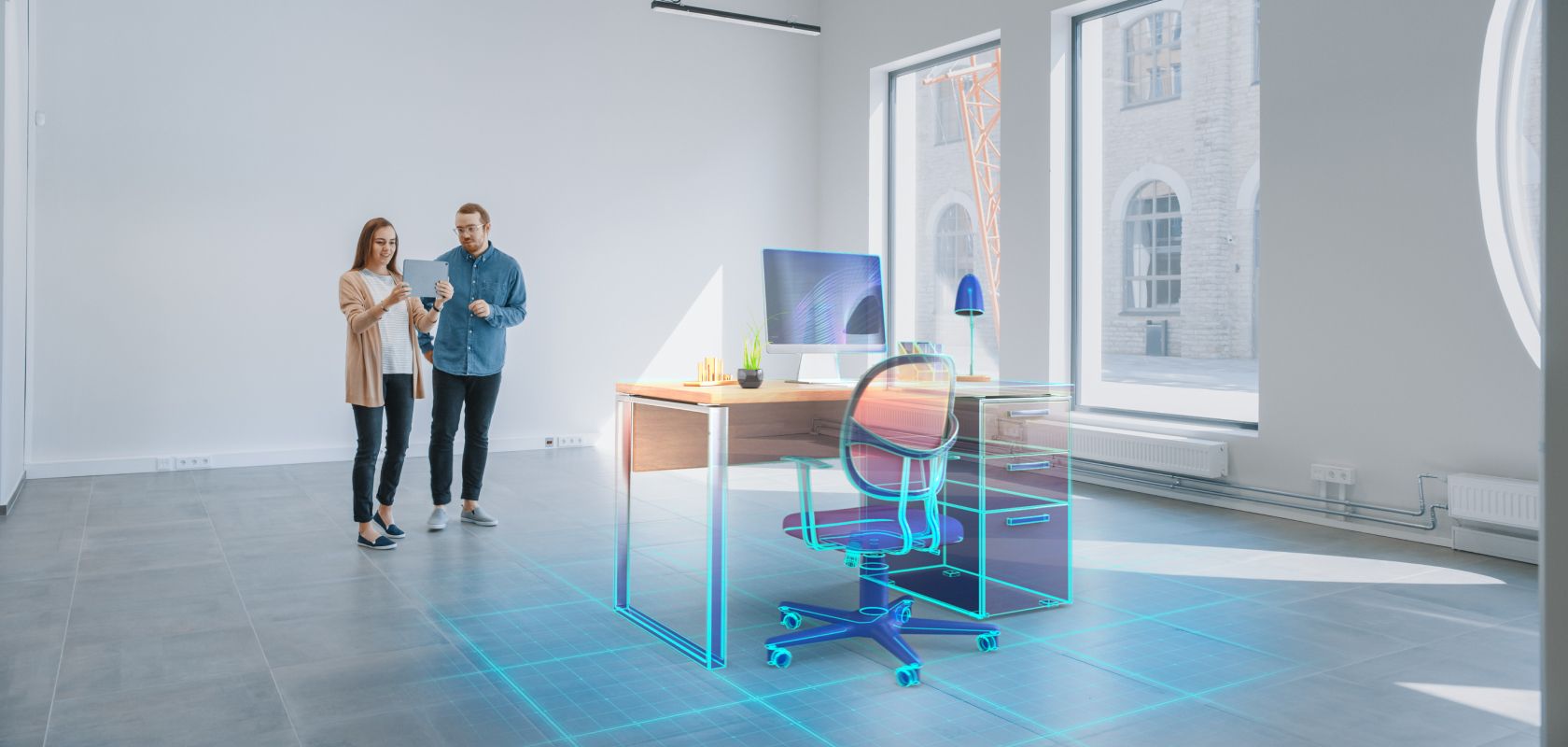
The Future of Furniture E-Commerce: How 3D and Augmented Reality are Changing the Game
3D and AR tech are revolutionizing furniture e-commerce through interactive room planning, realistic product visualization, customization, and virtual product assembly. This enhances the shopping experience and reduces costs.
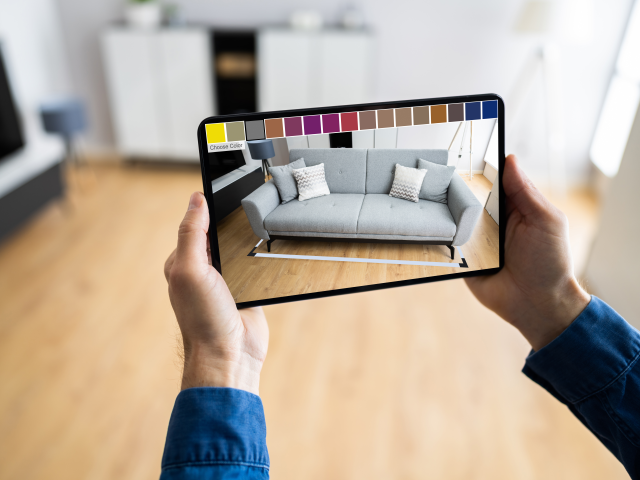
The Growth of Augmented Reality in Online Interior Furniture Retail
Augmented reality (AR) is revolutionizing online furniture shopping. By integrating AR into your e-commerce platform, customers can virtually place 3D furniture in their space, reducing errors and returns. AR offers personalization and interactivity, boosting customer confidence and sales. Embrace this technology to stand out and foster customer loyalty.

The importance of 3D models for e-commerce websites
Using 3D technology in your e-commerce platform enhances the shopping experience, enabling customers to view products from all angles and make informed decisions. Ensure high-quality models and mobile compatibility to provide an excellent user experience and boost sales.
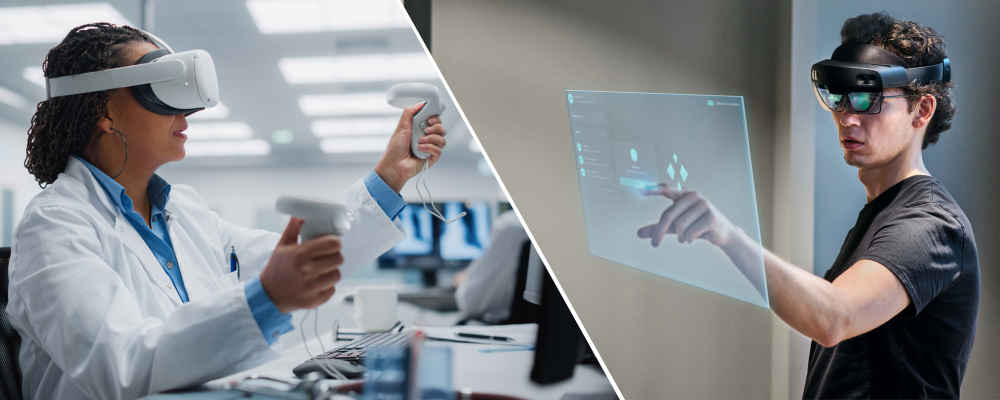
The Positive Effects of Augmented Reality in E-Commerce Over Virtual Reality
Augmented reality (AR) is revolutionizing online shopping by providing a more user-friendly and realistic experience compared to virtual reality. It allows customers to interact with virtual products in their real environment using smartphones or tablets, boosting user engagement and customization while reducing uncertainties in online purchases.
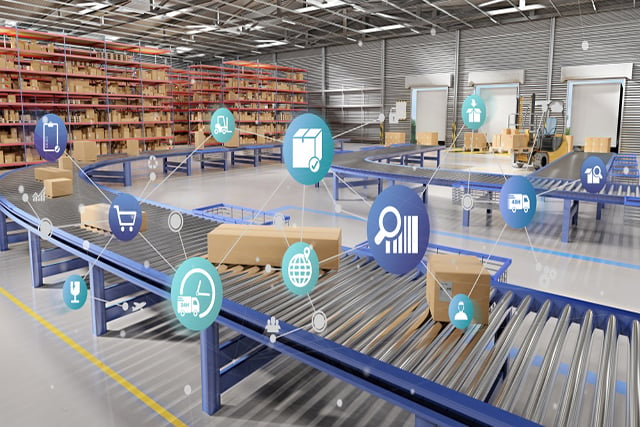
The Role of 3D Modeling and Augmented Reality in E-Commerce Supply Chain Management
3D modeling and AR are reshaping e-commerce supply chains by streamlining product development, enhancing warehouse operations, and improving the customer experience. These technologies reduce errors, increase efficiency, and keep businesses competitive.
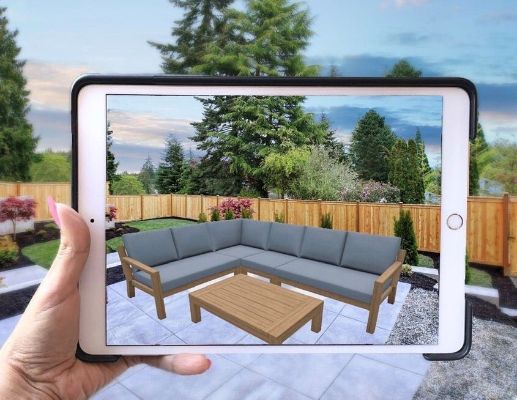
The secret to your summertime success as an e-commerce manager is augmented reality!
Summer presents an opportunity to boost online sales with augmented reality (AR). This tech lets customers virtually try products, enhances product presentation, and supports engaging marketing initiatives, all while providing a unique shopping experience that can set your business apart. Integrating AR into your e-commerce strategy can increase conversion rates and customer satisfaction.
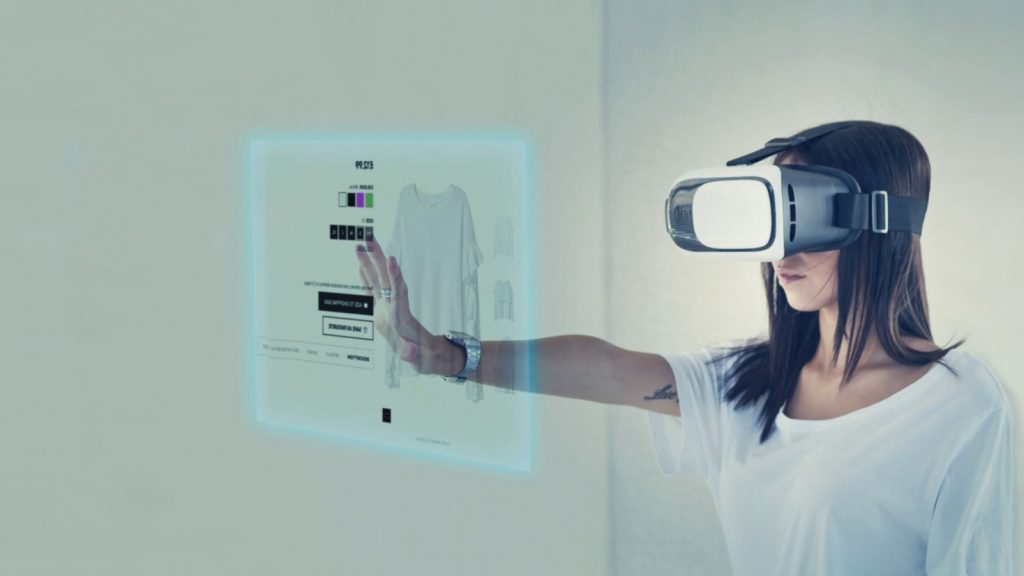
The Unlimited Accuracy of Augmented Reality: A Priceless Resource for E-Commerce Managers
Augmented Reality (AR) technology's remarkable precision enhances online shopping by helping customers evaluate products in their own space. This precision fosters trust, enhances sales, and reduces returns while providing a more engaging shopping experience. By integrating AR into your e-commerce platform, you can boost customer satisfaction, making it a valuable tool for e-commerce.
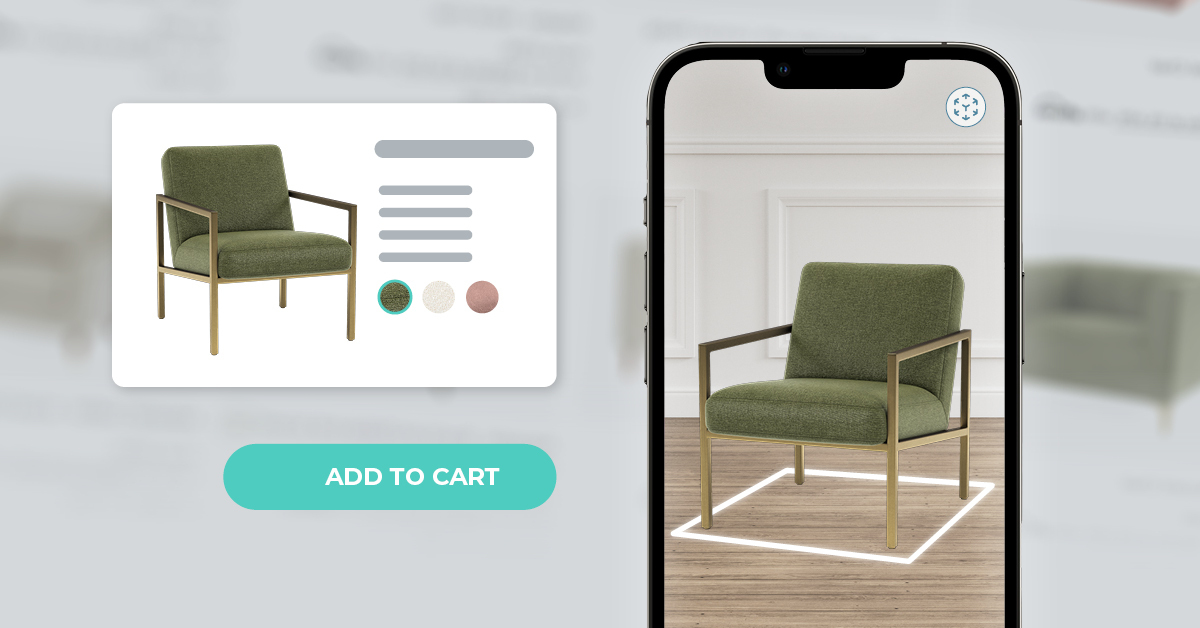
The Value of 3D View in E-Commerce: How an E-Commerce Manager Can Revolutionize the Customer Experience
3D perspective is vital in e-commerce for immersive shopping and enhanced product understanding. A case study of XYZ Company, an online furniture retailer, shows how it reduces returns and boosts sales. As an e-commerce manager, integrating 3D views enhances the online shopping experience.
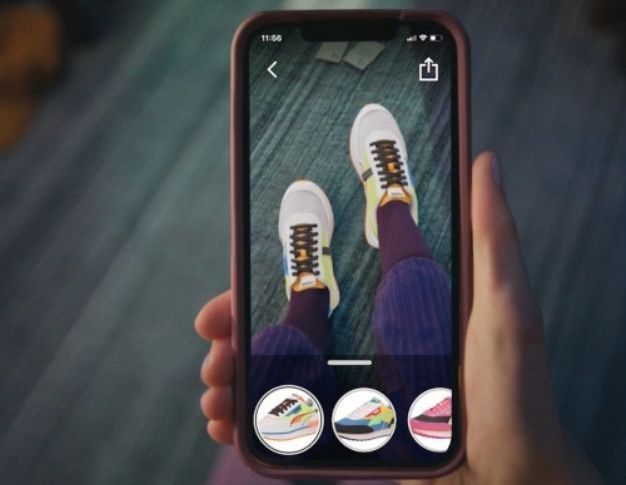
The world of accessories is being transformed by augmented reality.
Augmented reality (AR) is transforming the accessory industry. It enables virtual try-ons, personalization, and detailed product information. Customers can digitally experience and design accessories, while brands offer immersive interactions, enhancing the e-commerce experience. AR empowers customers and gives businesses a competitive edge.
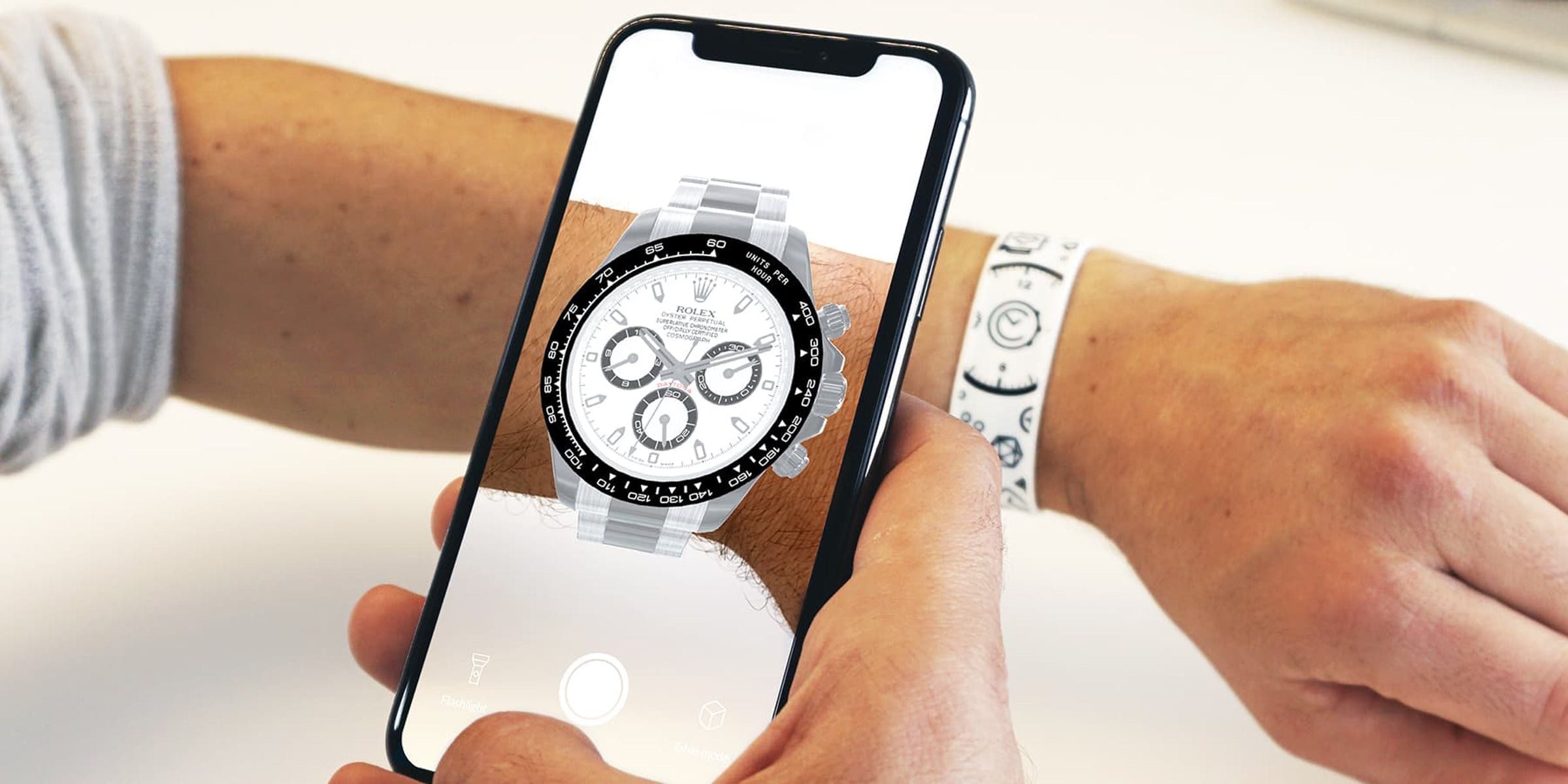
Time savings made possible by augmented reality: a benefit for online shopping
Augmented reality offers e-commerce managers significant advantages, including reducing returns, simplifying purchases, personalization, and increased engagement. By integrating augmented reality, e-commerce platforms can enhance the customer experience and streamline operations, bridging the gap between online and physical shopping.

Tips for Developing Engaging Augmented Reality Experiences for Online Shopping
Crafting Engaging Augmented Reality for E-Commerce - Learn key tips for creating captivating augmented reality experiences on your e-commerce site, simplifying access, offering diverse product options, and enhancing user engagement. Boost customer satisfaction and drive sales with seamless, user-friendly augmented reality features.
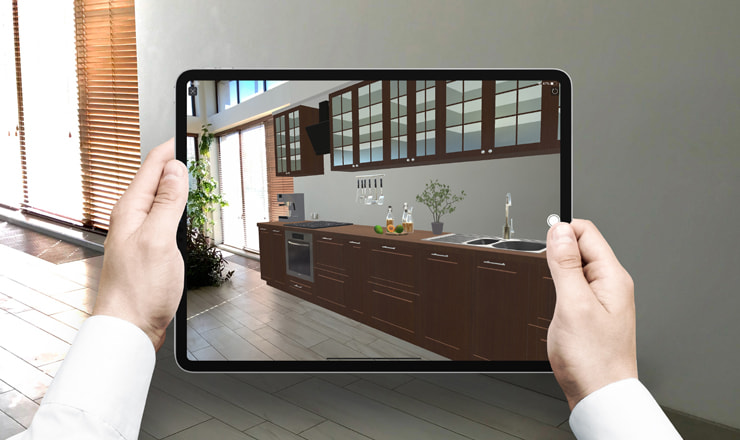
Transforming Home Decor with Augmented Reality
AR Transforms Home Decor - Augmented reality (AR) technology is revolutionizing the home decor industry, offering accurate visualizations, enhanced personalization, increased customer confidence, and cost savings. Discover how AR is changing the way customers shop for decor items and improving their overall experience.

Using Augmented Reality, You Can Make Your Mobile Shopping More User-Friendly.
Enhancing Mobile Shopping with AR - Discover how augmented reality (AR) technology can revolutionize your mobile shopping app by enabling virtual product try-ons, offering realistic 3D visualization, facilitating product integration into real environments, and providing detailed contextual information, all leading to an improved user experience and increased sales.

Using Augmented Reality and 3D in E-Commerce to Display Detailed Products
Augmented Reality: A Game-Changer for E-commerce - Augmented reality (AR) technology offers immersive 3D product visualizations, enabling customers to view items from all angles and project virtual products into their surroundings, enhancing their shopping experience

Using Augmented Reality and Endless Inspiration, Improve Your Online Sales of Outdoor Furniture
Augmented Reality (AR) Transforms Outdoor Furniture Shopping - Augmented reality offers realistic 3D visualizations of outdoor furniture in customers' own spaces, providing an engaging and inspiring shopping experience. It expands product choices, encourages customer interaction, and showcases user-generated projects for inspiration.

Using Augmented Reality in E-Commerce to Cut Production Costs
Augmented Reality in E-Commerce for Cost Reduction - Augmented reality (AR) offers e-commerce businesses opportunities to lower production costs through virtual product visualization, employee training, equipment maintenance, and improved marketing to reduce product returns and enhance the shopping experience.

Using augmented reality to improve e-commerce accessibility
Augmented Reality for Inclusive E-Commerce - AR enhances e-commerce accessibility, catering to diverse needs. It enables immersive shopping, well-informed choices, and customization, ensuring universal access and customer satisfaction.
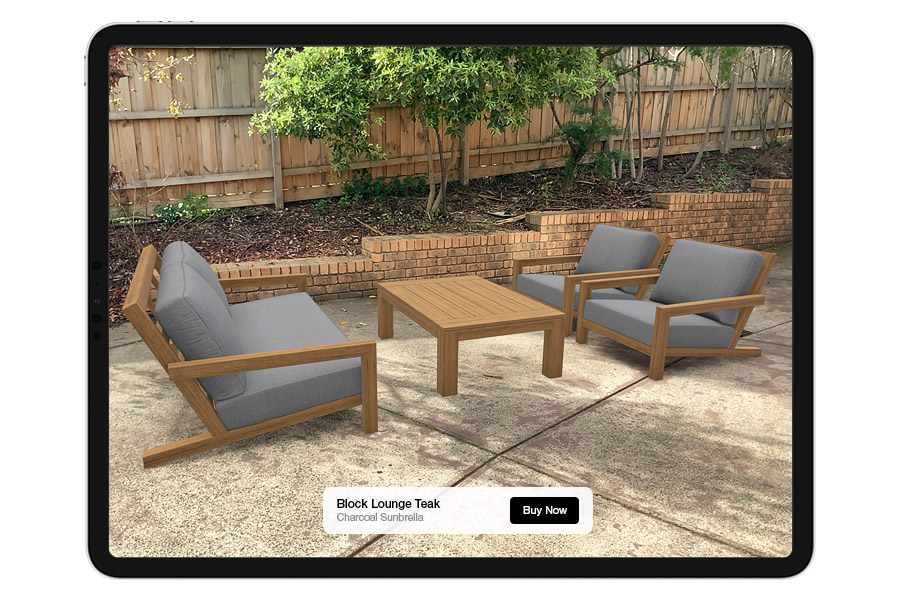
Using Augmented Reality to Improve the Visualizing of Outdoor Products on Your E-commerce Site
AR Transforms Outdoor Product Display: Augmented reality (AR) offers better visualization, a superior customer experience, sales growth, and fewer returns for outdoor products in e-commerce. Wayfair's case study showcases how AR technology can cut returns and increase sales.

Utilize Augmented Reality to Improve Your Summer Sale Campaigns
Maximize Summer Sales with AR: Use augmented reality to provide interactive experiences, virtual rewards and games, exclusive AR discounts, personalized offers, and enhance your marketing strategy to make your summer sales more engaging, boost conversions, and foster customer loyalty.

Utilize augmented reality to stand out from other companies
Unlock E-commerce Success with Augmented Reality: Leverage AR to provide an immersive shopping experience, reduce return costs, and stand out from the competition. Recent studies indicate that AR can significantly boost sales and customer loyalty. Get in touch with us today to explore the possibilities.
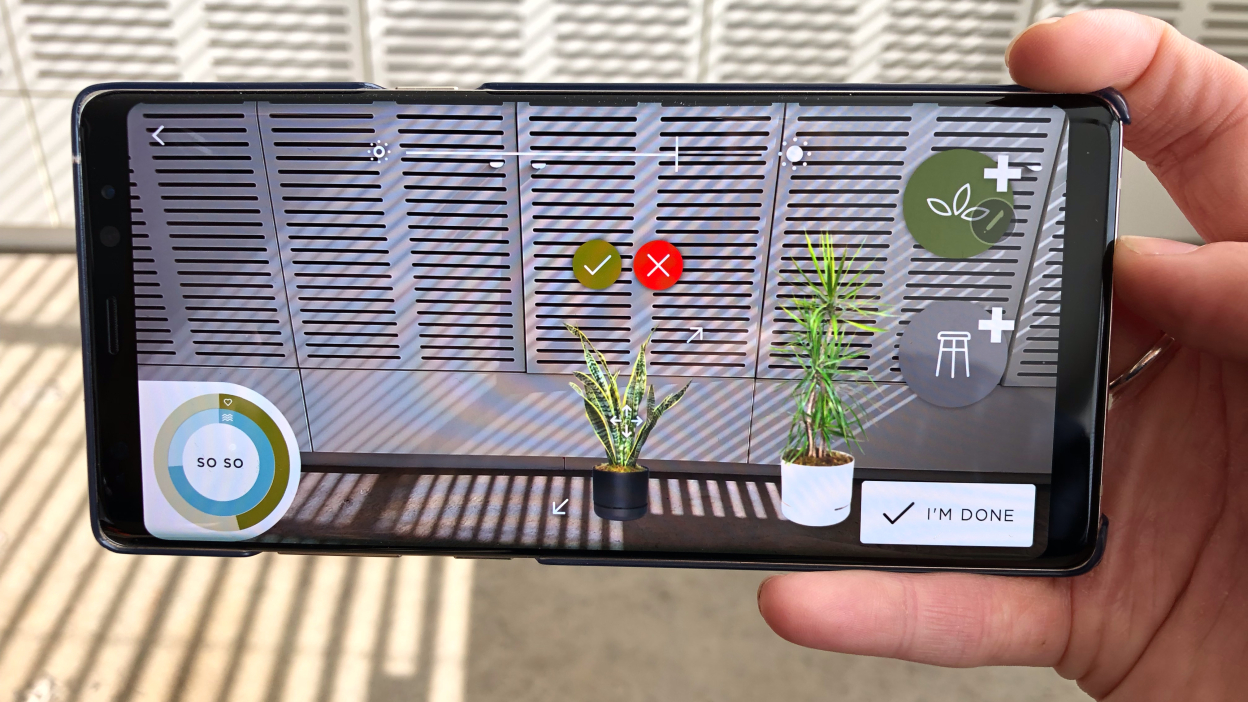
Virtual Plants for a Unique Shopping Experience: Create Your Summer Garden in AR
Transforming Summer Shopping with Augmented Reality: Explore how augmented reality (AR) can redefine the shopping experience for customers looking to create their ideal summer gardens. With virtual flora, personalized interactions, expert guidance, and social sharing, we have the potential to revolutionize the way customers shop for and enjoy their outdoor spaces this summer.

Web AR's Easy of Use for E-Commerce Customers
Enhancing the E-commerce Experience with Web Augmented Reality: Discover the easy accessibility and benefits of web augmented reality (AR) for e-commerce customers. With realistic product visualization, virtual try-on features, and social media sharing capabilities, web AR is changing the way people shop online, making it more immersive and engaging.
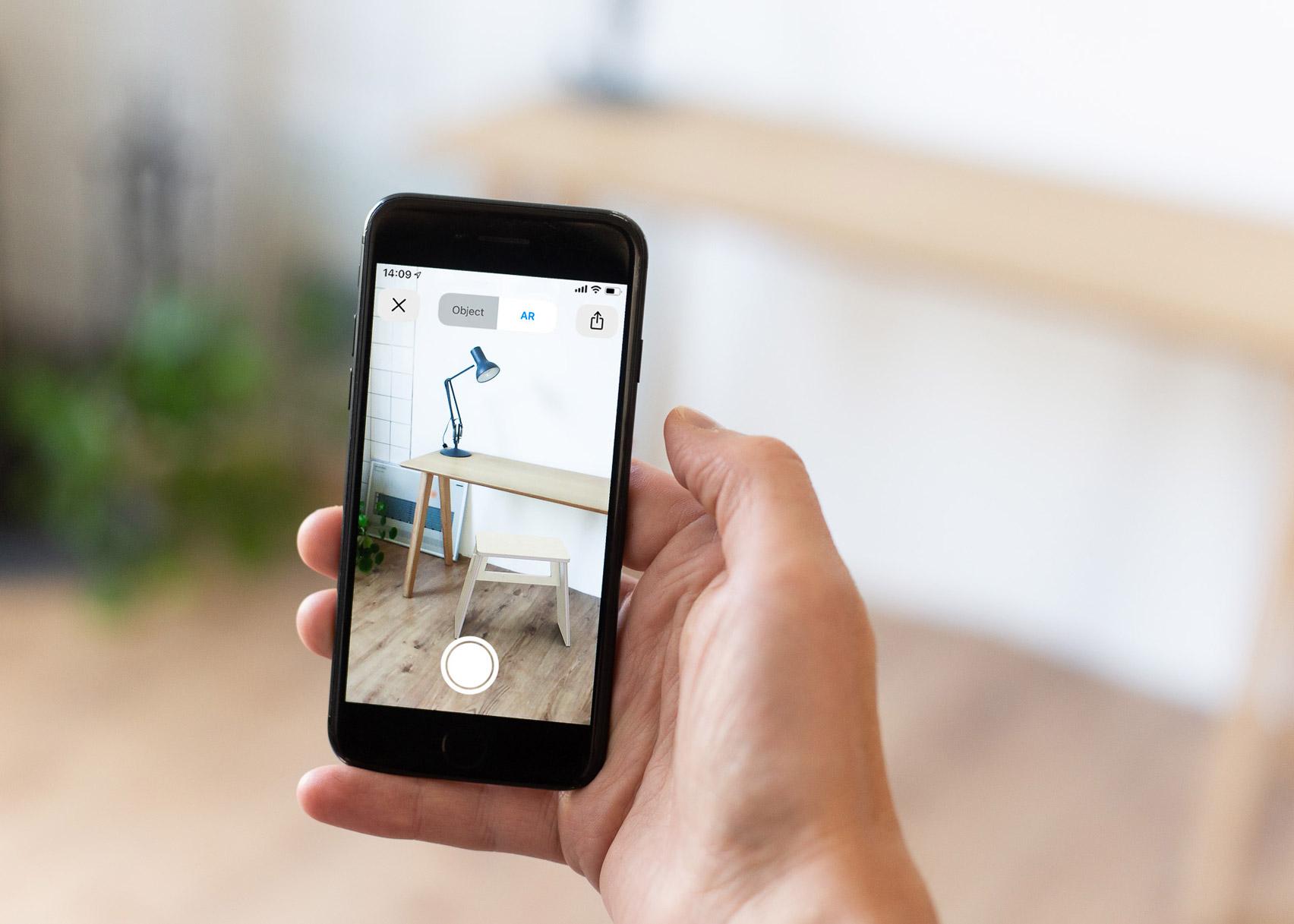
Web-AR's Potential for E-Commerce Unlocked
Revolutionizing E-commerce with Web-AR: Discover how Web-based Augmented Reality (Web-AR) can transform your e-commerce business. Enhance the online shopping experience for your customers with immersive 3D models, virtual try-before-you-buy, personalized experiences, and innovative marketing techniques.

Web Augmented Reality for Meeting Consumer Expectations: A Guide for E-Commerce Managers
Enhance E-commerce with Web Augmented Reality: Explore how Web-based Augmented Reality (Web-AR) can meet customer expectations and elevate your online store. Provide realistic product representations, virtual try-on experiences, personalized shopping, and risk reduction in online purchases. Create interactive and shareable experiences to boost sales and foster customer loyalty.
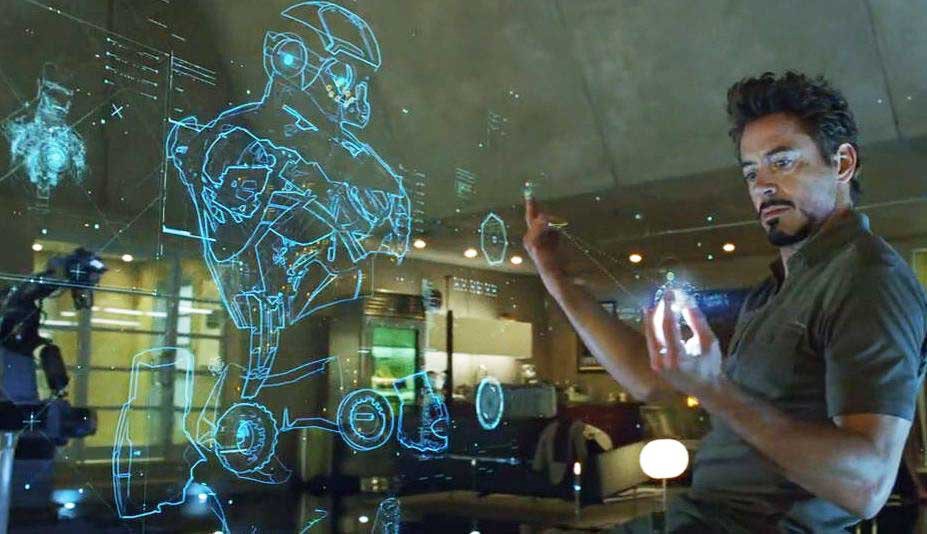
Why 3D Modeling and Augmented Reality are the Future of E-Commerce
Transforming E-commerce: The Future of 3D Modeling and Augmented Reality. Explore how 3D modeling and AR technology enhance product visualization, customer engagement, and operational efficiency in e-commerce. Discover how businesses can gain a competitive edge and anticipate the continued growth of these technologies in the online shopping landscape.
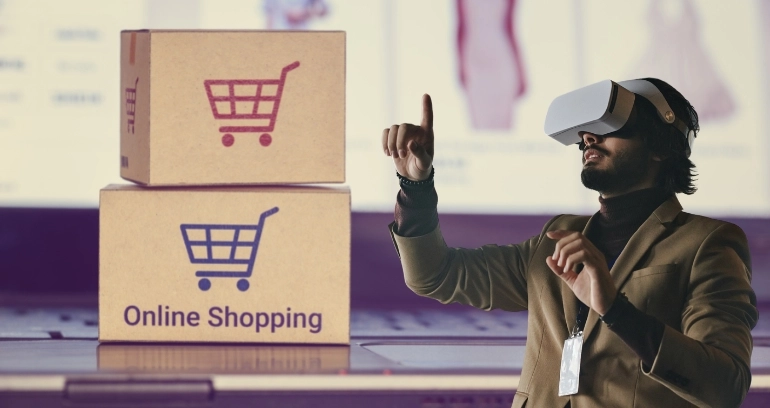
Why 3D Modeling and Augmented Reality SaaS Should Be a Top Priority for E-Commerce Businesses in 2023
Investing in the Future: The Role of 3D Modeling and AR SaaS in E-commerce. Discover why 3D modeling and AR SaaS solutions should be a top priority for e-commerce businesses in 2023. Learn about the benefits of improved product visualization, cost savings, and the growth potential in the 3D modeling and AR market.

Why Businesses Should Use Augmented Reality
Unlocking the Power of Augmented Reality: How AR can Enhance Customer Service and Boost Employee Productivity. Discover the potential of augmented reality to improve the customer experience, provide additional product information, and enhance employee training. Find out how your role as an e-commerce manager can drive the adoption of AR solutions that cater to your company's needs.
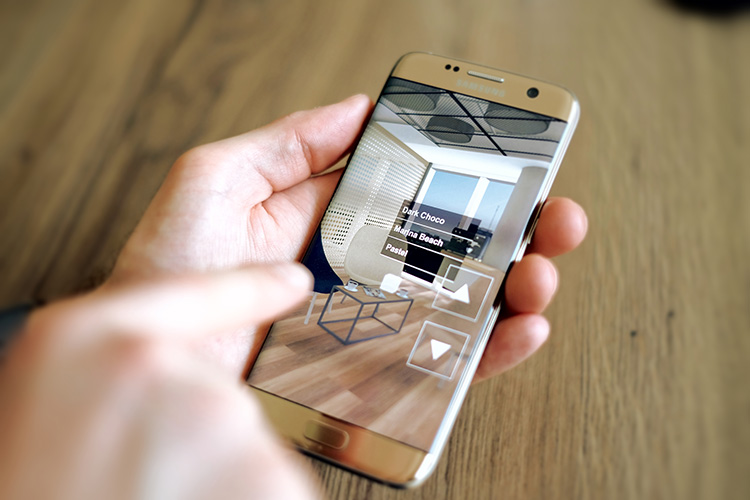
Why E-Commerce Businesses Should Invest in 3D Modeling and Augmented Reality Technology for Better Product Visualization
Enhancing E-Commerce: The Impact of 3D Modeling and AR for Product Visualization. Explore how 3D modeling and AR technology are reshaping online shopping. Learn how these tools boost customer confidence and engagement, resulting in higher sales and satisfaction. See why e-commerce businesses should invest in 3D modeling and AR.

Why E-Commerce Managers Must Quickly Adopt Augmented Reality in the Future
Embrace Augmented Reality in E-commerce Now! AR revolutionizes the shopping experience, breaking barriers, enhancing understanding, and providing a competitive edge. Stand out and stay ahead.

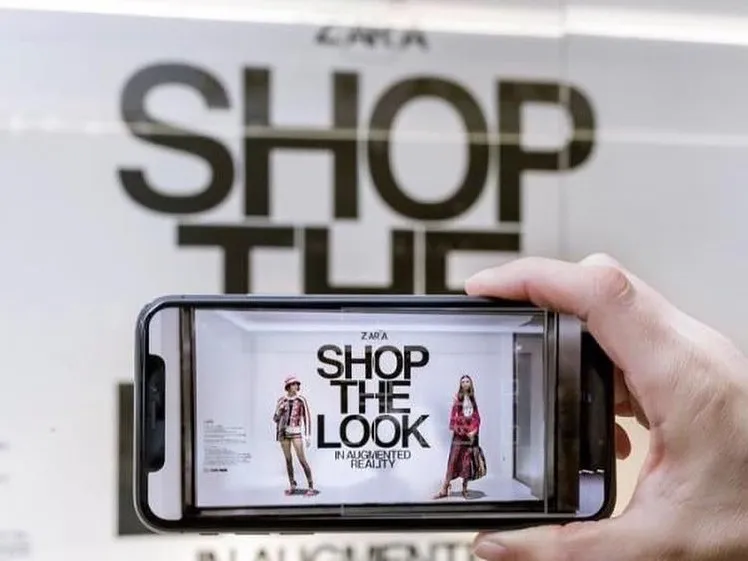
.webp)